

Reaching the UNCHURCHED and the DECHURCHED
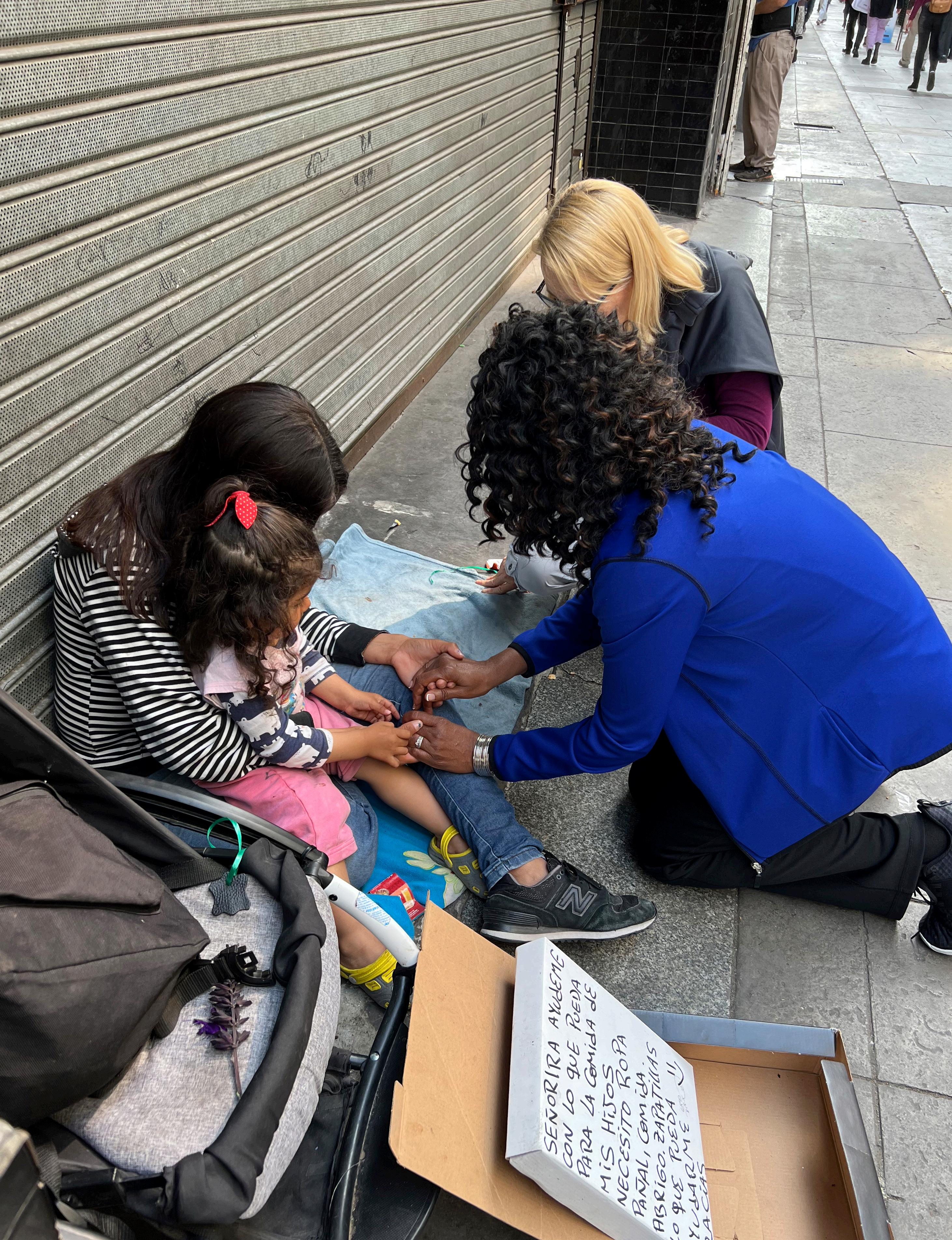
REACHING THE UNCHURCHED AND THE DECHURCHED: WON’T YOU BE MY NEIGHBOR?
BISHOP STACY TUTTLE
REACHING THE UNCHURCHED AND THE DECHURCHED: FINDING COMMON GROUND
KATHERINE OSBORN
BRIDGING THE GAP: REACHING THE UNCHURCHED AND THE DECHURCHED
BRIDGETT REECE

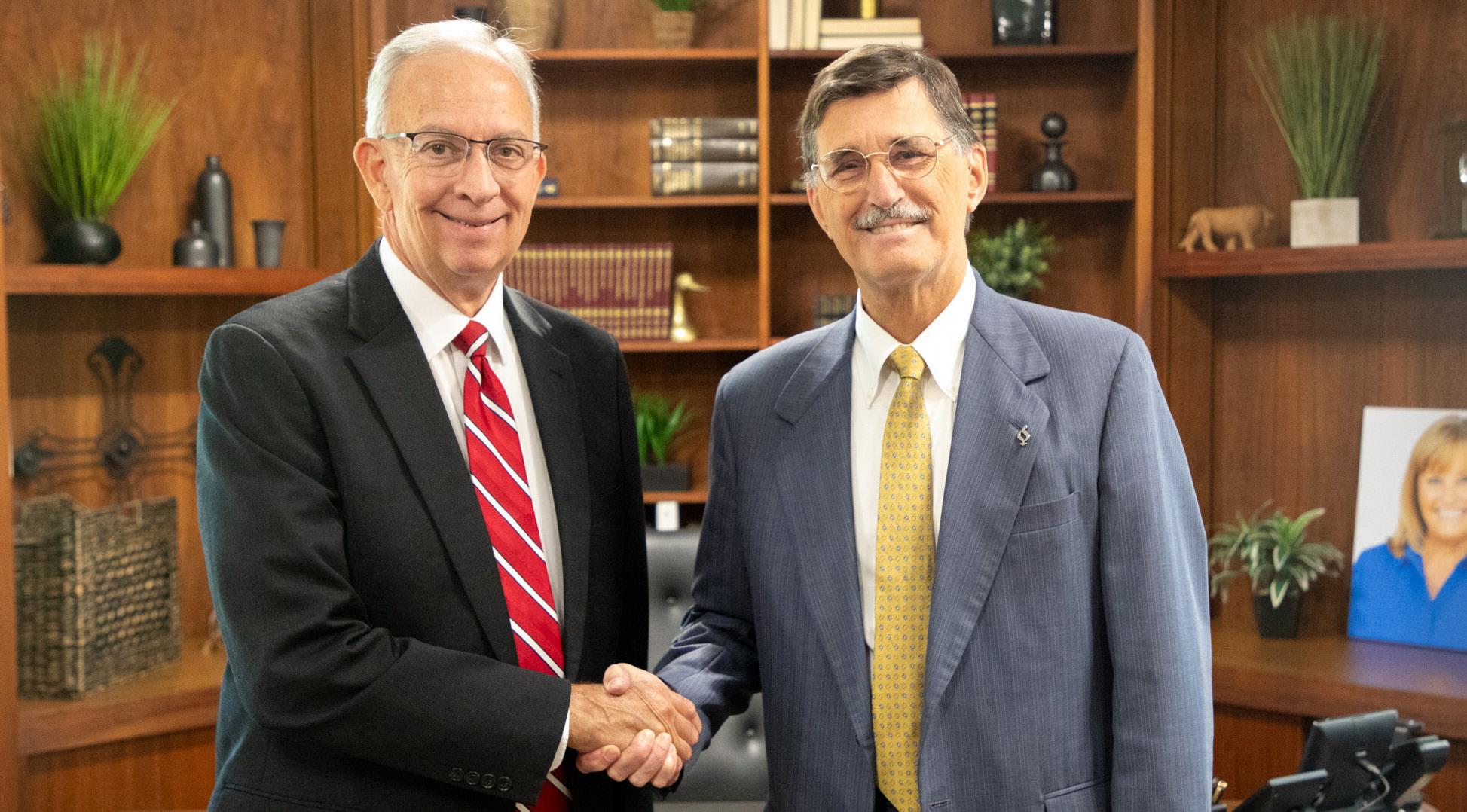
PRESS RELEASE
Lee University and Church of God of Prophecy Formalize Partnership
Lee University and the Church of God of Prophecy (COGOP) International Offices have officially entered into a new strategic partnership to strengthen educational opportunities for COGOP students and deepen the long-standing relationship between the two institutions. The agreement was formalized through a Memorandum of Understanding (MOU) signed on May 23, 2025.
The partnership designates Lee University as the preferred institution for COGOP high school graduates seeking inperson Christian higher education. It also provides a range of initiatives including targeted recruitment, enhanced student engagement, campus chapel collaborations, internship access for the ministries of the International Offices, and recognition of ministerial training for academic credit.
A key component of the agreement includes the provision of an annual $3,000 scholarship for credentialed ministers, bishops, and their dependents who attend Lee University on campus. Verification of eligibility will be conducted through the Office of the Presiding Bishop.
Dr. Paul Conn, president of Lee University, said, “We are so pleased that Bishop Coalter and his leadership team are joining with Lee University in this collaboration. We believe it will be a wonderful way for us to develop stronger ties with Church of God of Prophecy families and students. We have
had many wonderful students, over many years, from this sister denomination, and we are committed to serve more of them, with even greater effectiveness, as a result of this exciting new partnership.”
Presiding Bishop Tim Coalter expressed gratitude for the expanded opportunities this collaboration brings. “We deeply appreciate the opportunity this partnership creates for our ministers and their families. Through generous support from Lee University, the path to higher education becomes more accessible for our credentialed ministers’ children. At the same time, this agreement allows our ministries to maintain an intentional presence on campus, keeping COGOP students connected to their spiritual roots and our church family. We are excited about what this means for the future of our young people and the Kingdom work ahead.”
Additional elements of the agreement include Lee University’s participation at the biennial COGOP International Assembly, promotional collaboration across digital and print channels, and the appointment of an advisory committee to ensure ongoing collaboration and success.
More details will be forthcoming. For more information about these institutions, visit: www.leeuniversity.edu or www.cogop.org.

WE BELIEVE in the Holy Trinity—one God, eternally existing in Three Persons: Father, Son, and Holy Spirit.
We believe in one God, the Father, creator of heaven and earth, of all things seen and unseen.
We believe in one Lord, Jesus Christ, the only Son of God, eternally begotten of the Father. All things were made through Him and for Him. He is true God and true man. He was conceived by the power of the Holy Spirit and was born of the virgin, Mary. He suffered, died, was buried, and on the third day He rose from the dead. He ascended to the right hand of the Father, and He will return to judge the living and the dead. His kingdom will have no end.
We believe in the Holy Spirit, the Lord and giver of life, who eternally proceeds from the Father. He is Teacher, Comforter, Helper, and Giver of spiritual gifts. Through Him the saving and sanctifying works of Jesus Christ are applied to the life of believers. He is the empowering presence of God in the life of the Christian and the church. The Father has sent His Son to baptize with the Holy Spirit. Speaking in tongues and bearing the fruit of the Spirit are New Testament signs of being filled with the Holy Spirit.
We believe that salvation is by grace through faith in the sacrificial death of Jesus Christ on the cross and that He died in our place. The believer’s sins are forgiven by the shedding of His blood. We believe that healing of mind, body, soul, and spirit is available to the believer through the blood of Jesus Christ and the power of the Holy Spirit. We believe in one baptism in the name of the Father and of the Son and of the Holy Spirit.
We believe that the grace of God brings forgiveness and reconciliation to those who repent, as well as transformation in holiness, enabling them to live a Christ-like life. Sanctification is both a definite work of grace and a lifelong process of change in the believer brought by the blood of Jesus, the Word of God, and the enabling power of the Holy Spirit.
We believe in one holy, universal church, composed of all true believers in Jesus Christ, offering fellowship and calling for service to men and women of all races, nations, cultures, and languages. We believe in the spiritual and ultimate visible unity of the church.
We believe that the Bible—both Old and New Testaments—is the inspired Word of God. The Bible is God’s revelation of Himself and His will to humankind, sufficient for instruction in salvation and daily Christian living. The Bible is the Christian’s rule of faith and practice.
We believe that God will ultimately reconcile all things in heaven and earth in Christ. Therefore, we look forward to new heavens and a new earth in which righteousness dwells.
Executive Editor/Publisher: Tim Coalter
Managing Editor: Marsha Robinson
Copy Editor: Katherine Osborn, DMin
Graphic Designer: Charlie Scruggs
About the Church of God of Prophecy
The Church of God of Prophecy is a vibrant, worldwide body of believers, united in worship, working hand-in-hand to share God’s love and a message of hope to the brokenhearted. The organization has more than a million members and more than 10,000 ministers, worshiping in more than 10,000 churches or missions in 135 nations of the world.
Church
of God of Prophecy Core Values
• Prayer
• The Harvest
• Leadership Development
• Biblical Stewardship
• Service
Vision Statement
Reconciling the world to Christ through the power of the Holy Spirit
Mission Statement
The Church of God of Prophecy is a Christ-exalting, holiness, Spirit-filled, all-nations, disciple-making, churchplanting movement with passion for Christian union.
General Presbytery:
Tim Coalter: Presiding Bishop
Brian Sutton: North America
Clayton Endecott: Wider Europe and the Middle East
Benjamin Feliz: Mexico/Central America/ Spanish-Speaking Caribbean
Clayton Martin: Caribbean/Atlantic Ocean Islands
James Kolawole: Africa
Tim McCaleb: Asia/Australia/Oceania
Gabriel E. Vidal: South America
White Wing Messenger (ISSN 0043-5007) (USPS 683-020) is published monthly as the official publication of the Church of God of Prophecy, 3720 Keith St. NW, Cleveland, TN. Send all materials for publication to Editorial Department; PO Box 2910, Cleveland, TN 37320-2910; email: editorial@cogop.org; fax: (423) 559-5151. For a free subscription, email wwm@cogop.org, visit whitewingmessenger.net, or call (423) 559-5540. Donations for the White Wing Messenger may be sent to the above address. All Scripture references are from the King James Version unless otherwise indicated. POSTMASTER: Send address change to White Wing Messenger, PO Box 2910, Cleveland, TN 37320-2910. Please submit all material to the White Wing Messenger; Managing Editor; PO Box 2910; Cleveland, TN 37320-2910; phone (423) 5595320; email us at editorial@cogop.org.
FEATURES
8 Reaching the Unchurched and the Dechurched: Won’t You Be My Neighbor?
Bishop Stacy Tuttle
11 Reaching the Unchurched and the Dechurched: Finding Common Ground Katherine Osborn, DMin
16 Reaching the Unchurched and the Dechurched Bridgett Reece
18 Win the Lost in a Wandering World: Reach the Unchurched and Dechurched for Christ Marsha Robinson
DEPARTMENTS
2 Global Communications Lee University and Church of God of Prophecy Formalize Partnership
22 Heritage Ministries Handling the Past: Exploring Serpent Handling in the Church of God Movement
30 Global Communications First Impressions Matter: How Churches Can Create Welcoming Spaces for Everyone
32 Leadership Development and Discipleship No Comic Book Story: Your Faith is Real!
34 Youth Ministries Rise Youth Conference Recap
37 Heritage Ministries In His Presence
COLUMNS
4 Facing Forward Bishop Tim Coalter
6 Connections Paraguay
20 Pentecostal Perspective Bishop Carswell Leonard, PhD
24 We Are The Church of God of Prophecy Highlighted Language: Ewe
26 The Pastor's Table Pastor Darren Schalk
28 This Is My Story Lauren McKee
The White Wing Messenger is a member of the Evangelical Press Association


Reaching the UNCHURCHED and the DECHURCHED
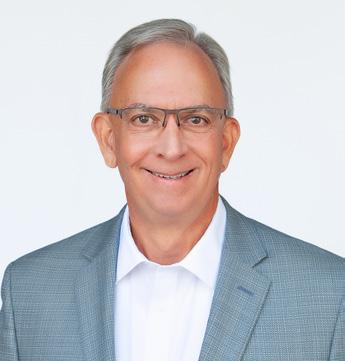
When my Savior reached down for me, When my Savior reached down for me; I was lost and undone, without God or His Son, When my Savior reached down for me.
These lyrics of the old hymn written by G. E. Wright remind us that our God is a “reaching” God. His reach is both personal (“for me”) and unconditional (for the “lost and undone, without God or His Son”).
In Psalm 18:16–17, the Lord is described as reaching down from on high to rescue and protect those who are in distress. David said, “He reached down from heaven and rescued me; he drew me out of deep waters” (18:17 NLT).
Out of a heartfelt desire to align with Jesus, we must be a “reaching” church. Our reach must also be personal and unconditional. This edition of the White Wing Messenger calls us to extend our reach to the unchurched and the dechurched.
Of these two terms, you are probably more familiar with the first—the unchurched. They are those who have
no meaningful church background, no Sunday School memories, nor any formative faith experiences. They are not necessarily hostile to the gospel; they are just unfamiliar with it.
In contrast, the dechurched are those who once walked with us—perhaps they sang in choirs, served on ministry teams, or led youth groups—but have since disengaged from church life altogether. Many of these are not far from the kingdom; they have simply stepped away, or perhaps drifted away, and are no longer actively involved in the life of the church.
The good news is this: God has not withdrawn his reach, and neither have we.
As a Spirit-empowered movement, we believe that dry bones can live again, that prodigals can come home, and the lost can be found. Reaching the unchurched and the dechurched will not come by strategy alone—though strategy matters—but by a fresh baptism of compassion that will lead to engagement and connection.
We cannot rely on yesterday’s methods to reach today’s world. The unchurched are not looking for a church that simply meets on Sunday—they’re looking for a
BISHOP TIM COALTER | PRESIDING BISHOP
▲ The cover image of this month’s issue features Pastor Janice Roseboro (Greater Vision Worship Center, North Carolina) and Rev. Theri Santos (One Mission Society)
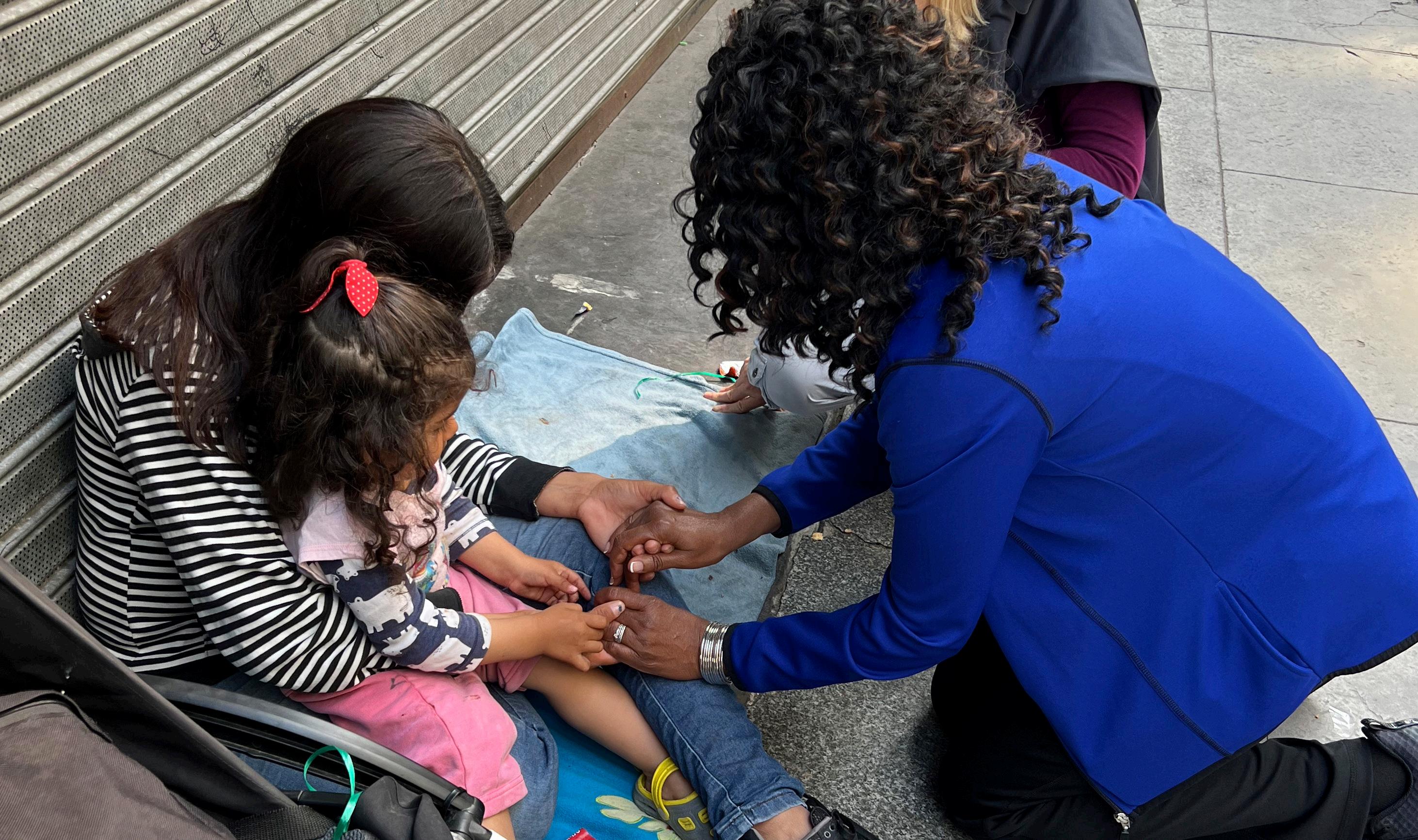
community that makes sense of life on Monday. The dechurched are not longing for programs—they are seeking authenticity, connection, healing, and purpose.
Let me offer four principles as we lean into this mission with renewed passion:
1. Listen before speaking.
We must learn to listen to the stories of those who have walked away and of those who have never been “churched” before we preach another sermon at them. Compassion earns credibility. Before people will trust our message, they must sense that we have listened, really listened, and heard their story.
2. Lead with relationship, not religion.
The early church grew “daily” not because of weekly services alone, but because of daily connections. Acts 2:46–47 (NIV) says, “They broke bread in their homes and the Lord added to their number daily.” The dechurched often have a church scar that can only be healed in the safety of authentic relationships. Do not invite them to your building before you invite them to your table.
3. Make room for questions and doubts.
Pentecostal churches are known for our bold preaching and confident declarations of faith. But let us also be places where the seeker, the skeptic, and the struggling believer can wrestle honestly. Jesus welcomed Thomas’s doubts without rebuke. We must make room in our churches for the slow journey toward trust and belief.
4. Expect the Holy Spirit to do the heavy lifting.
Ultimately, it is not slick programs or clever marketing that wins the heart—it is the Holy Spirit. We must believe again that the Spirit draws, convicts, heals, and restores. When we create space for his presence, he does what no sermon or system can do. We can plant and water, but only God gives the increase.
This is the season for reaching. Let us be the kind of church the unchurched and the dechurched did not even know they were searching for—a church full of grace and truth, rooted in Scripture and alive with the Spirit, serious about holiness but soaked in mercy.
Make room for the reach!
doing street evangelism in Argentina.

CONNECTIONS
News from PARAGUAY
National Convention: On Mission
I greet you with the peace of our Lord Jesus.
On April 25–27, 2025, we celebrated our national convention. Our distinguished guests included General Presbyter Bishop Gabriel Vidal, International Youth Ministries Director Bishop Kirk Rising, Global Missions Coordinator Cathy Payne, and Pastor Raul Carrasco.
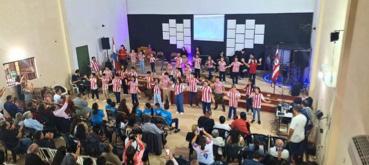
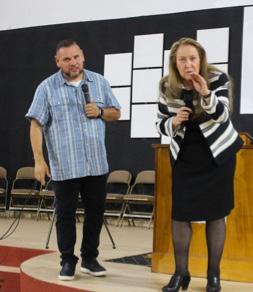
Approximately 360 people felt the presence of our good God as we fellowshipped with our brothers and sisters who came from all parts of the country. We were strengthened to continue fulfilling the vision of reconciling Paraguay to Christ through the power of the Holy Spirit.
We appreciate your prayers on our behalf.
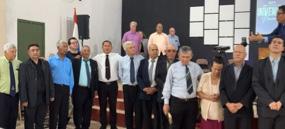
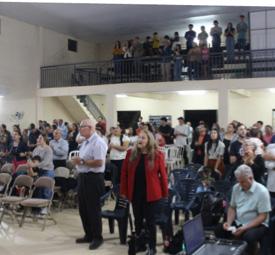
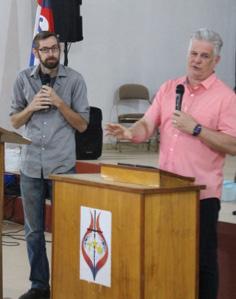
NORA RIQUELME | NATIONAL COMMUNICATIONS DIRECTOR
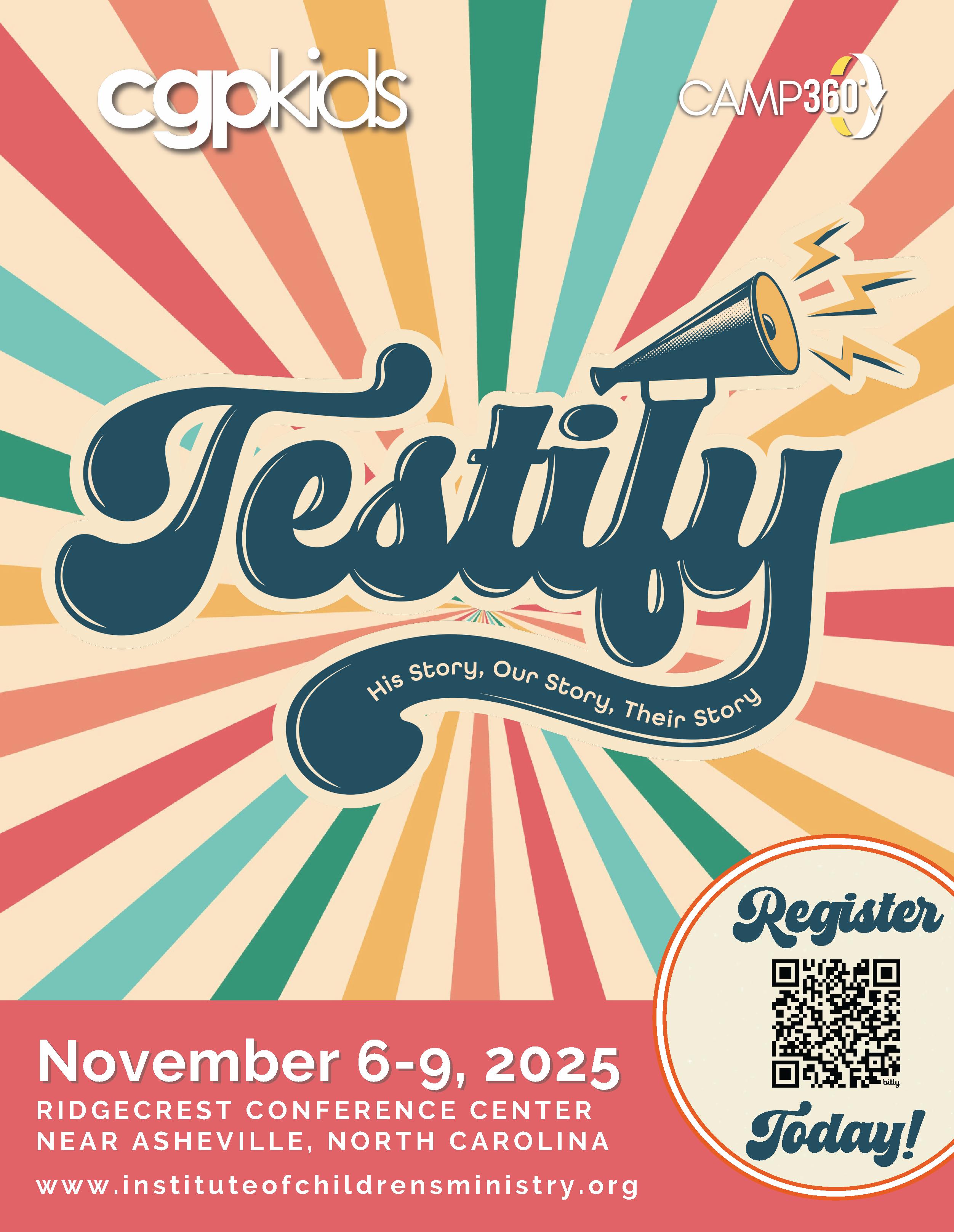
Reaching the Unchurched and the Dechurched:
WON’T YOU BE MY NEIGHBOR?

Won’t You Be My Neighbor1
It’s a beautiful day in this neighborhood, A beautiful day for a neighbor.
Would you be mine?
Could you be mine?
It’s a neighborly day in this beauty wood, A neighborly day for a beauty, Would you be mine?
Could you be mine?
I have always wanted to have a neighbor just like you, I’ve always wanted to live in a neighborhood with you.
So, let’s make the most of this beautiful day, Since we’re together we might as well say,
Would you be mine?
Could you be mine?
Won’t you be my neighbor?
Won’t you please, Won’t you please?
Please won’t you be my neighbor?”
Mr. Fred Rogers gained neighbors by consistently demonstrating kindness, respect, and acceptance towards everyone, especially children, through his television show, Mister Rogers’ Neighborhood. He created a sense of community by welcoming viewers into his home, engaging with them directly, and addressing important childhood issues with honesty and empathy. He also extended his definition of “neighbor” to encompass anyone who needed care and support, regardless of their background or location.
What can we learn from this?
Jesus said to him, “You shall love the Lord your God with all your heart, with all your soul, and with all your mind. This is the first and great commandment. And the second is like it: ‘You shall love your neighbor as yourself.’ On these two commandments hang all the Law and the Prophets.” (Matthew 22:37–40 NKJV)

Here God outlines our greatest purposes on earth: to love him and to be good stewards of our community, to be committed to bringing shalom (peace) to our spheres of influence, to be a good neighbor. This call to community and shalom may even cause us to reshape who we consider our neighbor to be.
The statement that Luke’s Gospel gives us—“Jesus came to seek and save the lost” (Luke 19:10)—is a central theme in the Christian faith, emphasizing Jesus’s purpose in coming to earth. It highlights his mission to reach out to those who are separated from God due to sin, offering them reconciliation and salvation, according to the New Testament.
Jesus is our model.
We are to be his hands and feet. His plan is our purpose. Jesus had a unique way of reaching out to his followers
and engaging people far from God. This primarily involved being a friend, even to sinners. As Jesus walked the earth, he was called a “friend of sinners.” Jesus hung out with people on the fringe of society—prostitutes, tax collectors, the downtrodden. Being a friend of sinners did not mean that Jesus compromised his standards. He never participated or gave approval to their wayward ways, but he did care enough to get to know people. The closer he got, the more they knew that he cared.
Building relationships is an essential part of reaching the unchurched and those who have walked away from the church. It was this heart for people that Jesus poured into his early followers. These men were soaked in prejudice and quick to pass judgment on people just because of their cultural background or bad choices. Jesus worked hard to break down those barriers, which meant taking his followers to places that were uncomfortable for them at first. He dragged them to Samaria (a forbidden territory just north of Jerusalem) to meet a woman at a well. He ordered them to cross over the Sea of Galilee into non-Jewish territory in order to encounter a man filled with demons. He marched them north to Tyre, a Gentile city outside the boundaries of Israel, to meet a desperate woman looking for healing. He led his men to Caesarea Philippi, where people practiced all kinds of pagan worship.
Why did Jesus do this? He wanted his followers to learn a particularly important lesson: People matter to God. There is no one off-limits from God’s grace. He wanted them to understand that they must go to the people since, in most cases, those who need God the most will not come to them! The same lesson applies to us today.
Every person matters to God.
To follow Jesus and join him on his mission means we must embrace the fact that every person matters to God. You have never met a person God does not love. You have never seen a person who is so far that God cannot reach them. It is very likely, the people who need Christ the most are not going to be showing up at church on Sunday. That is why Jesus is sending you to them.
The first step in living “on mission” is to begin to look around and see the people God has already put in your life who need him. Think right now, who are the people in your life who do not know Christ? These may be

people you live next to or work alongside. Maybe they are people who go to the same stores you do. Ask God to open your eyes.
Then, once you see them, be a friend. Linger long enough to have a conversation. Spend time getting to know them. Make eye contact. Share your heart. Listen. This may mean lingering a little longer when you drag your trash out to the curb so you can have a conversation with a neighbor. It may mean initiating a conversation with a co-worker to learn more about his or her back story.
At first, this may make you feel a bit uncomfortable. Remember, Jesus intentionally put his disciples in uncomfortable situations, often stretching them way outside their comfort zones. But the more you push through that initial feeling of awkwardness, the more you will be amazed at how God will put hurting people in your life for you to touch. This is living on mission, “Jesus style”!
The biggest obstacle to taking the Great Commandment seriously is TIME.
We live in tension between the urgent and the important. When our priorities are determined by the urgent,
our lives will not line up with our intentions. Jesus accomplished much, but his life was never hurried. He had time for people and for conversations. Do we live at a pace that allows us to be available to those who live around us? Jesus had time for interruptions; . . . do we? What would it take to change the pace of our lives in order to be more available to those who live around us?
In The Life You Have Always Wanted, John Ortberg states, “Hurry is the great enemy of spiritual life in our day.”2 He makes up the phrase “hurry sickness” and goes on to say that the reason hurrying is so dangerous is because love and hurry are not at all compatible. “Love always takes time, and time is the one thing that hurried people don’t have.”
Reaching the unchurched and the dechurched is about building genuine relationships. We should focus on sharing how faith has shaped our lives, telling our story. People are drawn to authenticity. Theodore Roosevelt stated, “People don’t care how much you know until they know how much you care.”
1 “Won’t You Be My Neighbor,” music and lyrics by Fred M. Rogers (McFeely-Rogers Foundation, 1990), Mister Rogers’ Neighborhood, https:// www.misterrogers.org/videos/wont-you-be-my-neighbor/.
2 John Ortberg, The Life You've Always Wanted: Spiritual Disciplines for Ordinary People (Grand Rapids, MI: Zondervan, 2015).

Whether we realize it or not, people are asking, “Won’t you be my neighbor?” BISHOP STACY TUTTLE SOMERSET,
KENTUCKY
Pastor Stacy Tuttle currently serves as Senior Pastor of New Beginnings Worship Center in Somerset, Kentucky. Licensed as a minister in the Church of God of Prophecy in 2015, Stacy was more recently ordained as a bishop at the 2022 International Assembly. He and his wife, Valerie, have been married 17 years and are blessed with four children. The Tuttles believe that God’s grace should be extended to everyone, which he does through our being the vessels that he has called us to be.

FINDING COMMON GROUND
This month’s theme, Reaching the Unchurched and the Dechurched, resonates with our Church of God of Prophecy (COGOP) vision statement of “Reconciling the world to Christ through the power of the Holy Spirit.” We are in the business of souls—spreading the love and hope of Jesus to a world that needs to be reconciled to him. While our focus here is on the “unchurched” and the “dechurched,” the reality is that the majority of those who are lost fall into one of these two groups. Thus, categories aside, the mission is to reach the world with the gospel message.
Without being too repetitive of others, it is important to understand who we are talking about and how they may differ. The simplest definition is that the unchurched person is not currently, nor has been recently, connected to a Christian church. The dechurched, in a sense, are a subcategory of the unchurched because they are no longer connected with a church, although they were connected in the past. The dechurched are not just those who have suffered past hurt; they also include those who have grown disillusioned with the church for any number of reasons.
A View of the Religious Environment
If you do not like statistics, you may want to skim past this next section. However, the following information is eye-opening, and as Christians, it might behoove us to look at what the statistics are saying.
Pew Research just released a report1 (view report here) dated June 9, 2025, that shows Islam was the fastestgrowing religion from 2010 to 2020. Based on the 2020 statistics, Christians make up 2.3 billion of the global population and Muslims make up 2.0 billion. While the number of Christians is still greater (28.8 percent of the global population), the rate of growth based on world population is another story. When viewed through this lens, Islam had a 1.8 percent growth rate (now making up 25.6 percent of the world population) while Christianity had a 1.8 percent decline. The number of “nones”—those with no religious affiliation—grew at the second largest rate (0.9 percent) and now make up 24.2 percent of the global landscape. These “nones” are the unchurched and the dechurched.
Looking at the growth (or lack of growth) among the Christian population, it becomes apparent that another
shift is taking place as well. The largest percentage of Christians (30.7 percent) now live in Sub-Saharan Africa. Latin America and the Caribbean are second with 24.1 percent of the Christian population, followed by Europe with 22.3 percent. While the Christian population in Europe is third in number, it had the largest decline percentage-wise—down 3.5 percent. North America’s decline is at 1.9 percent. Sadly, the two continents where Christianity once thrived are now the two where decline is the greatest.
For those of us who live in the United States, the numbers seem to verify what Michael Graham and Jim Davis have called “The Great Dechurching” of our nation. According to them, “Tens of millions of formerly regular Christian worshipers nationwide have decided they no longer desire to attend church at all,” which has resulted in “the largest and fastest religious shift” ever recorded in our history.2 Once touted as a Christian nation (founded on Christian principles), church membership in the United States started declining back in the 1990s. We have felt the impact of this decline, and it might be wise to ask ourselves, “What happened?” Answers to this question will vary, but Graham and Davis ascribe this decline to three noteworthy events3:
• The end of the Cold War. “American” and “Christian” were often considered synonymous terms throughout the Cold War. This changed with the collapse of the Soviet Union and the end of the Cold War era, when “it became more culturally acceptable to be both American and non-Christian.”
• Fallout from the “polarized Religious Right.” Names like Jerry Falwell, Pat Robertson, and Newt Gingrich became associated with religious extremism in politics, and many Christian Americans “in the middle” became frustrated and entered the ranks of the “nones.”
• Influence of the internet. Increased access to the internet has also meant increased access to numerous and vastly different worldviews and value systems. People, young and old alike, have access to online communities that readily accept them and their questions about faith and morality without casting judgment.
You may notice that the three events above do not even touch on the number of people who have left the church
“Yes, I try to find common ground with everyone, doing everything I can to save some. I do everything to spread the Good News and share in its blessings.”
1 CORINTHIANS 9:22 NLT
due to some sort of church hurt or offense. (Just for the record, a 2010 Barna study showed that 37 percent of those who avoid Christian churches do so because of a negative past experience with the church or with church people.4) We must acknowledge the hurts that have occurred within the church and take responsibility for our part, but we must also look at how culture and attitudes have changed over the past few decades so that we can be better equipped to move forward. As alarming as the statistics are, they are also a reminder of God’s commission to go and make disciples and our responsibility to work as agents of reconciliation.
Finding Common Ground
With so much change taking place around us, where do we begin? How can we become a people who have true compassion for the lost and for those who have been hurt?
To begin with, we must have a heart shaped by the redemptive work of Christ. He gave his life willingly in our place because of his great love for us. When we recognize the depth of his love for us and the extent of his mercy and grace, surely it will have an impact on our own hearts. As we grow in relationship with our Savior, his love transforms our selfish hearts into hearts that break over those who are lost.
The life of Jesus shows us what a heart of love and compassion looks like. He is the essence of love and the model of self-sacrifice. Not only did he give up his place of privilege in heaven to take on human flesh (Philippians 2:6–8), but he is the one who gave up his life for us. He paid our debt, a debt we could not pay, by dying on the cross in our place. While he traversed this earth, he met the lost where they were, crossing social and cultural barriers. He touched and healed a man with leprosy (Luke 5:12–16). He called a tax collector to be his disciple and then ate dinner with him and his friends (5:27–32). He allowed a sinful woman to wash

his feet and then forgave her sins (Luke 7:36–50). He healed a demoniac (7:26–39). He spoke to a Samaritan woman and introduced her to the Living Water (John 4:1–42). He saved the life of the woman caught in adultery and freed her from condemnation (John 8:2–11). In these encounters and many others throughout the Gospel, Jesus interacted with people “on their turf.” He welcomed their questions and their doubts, and he ministered to them regardless of their social or ethnic background, personal history, beliefs, or any other issue.

Paul elaborated on this idea of common ground. In his first letter to the Corinthians, he addressed several issues that threatened to tear the church apart. In the process, Paul made it clear that while he was free in Christ (free from the demands of the Law and the many restrictions within Judaism), he gave up his rights for the sake of others. In 1 Corinthians 9:19 (ESV), he said, “For though I am free from all, I have made myself a servant to all, that I might win more of them.” He then illustrated several ways that he had put this into practice, reminding his readers of his purpose—that he might win more souls to Christ. In concluding this portion of his discourse, he wrote, “I have become all things to all people, that by all means I might save some. I do it all for the sake of the gospel, that I may share with them in its blessings” (9:22). The NLT makes it is a little plainer: “Yes, I try to find common ground with everyone, doing everything I can to save some. I do everything to spread the Good News and share in its blessings.” Paul was a man on mission, focused on reconciling the world to Christ!
Like Jesus and Paul, we need to be focused on the heart of the mission. We need to find common ground where we can meet the unchurched and the dechurched where they are. This is not a license to compromise what we believe, nor is it an excuse to live like the world. After all, we have been called and set apart—sanctified—for God’s purposes (Leviticus 20:26; 1 Peter 2:9). The world is not looking for us to be like them; they are searching

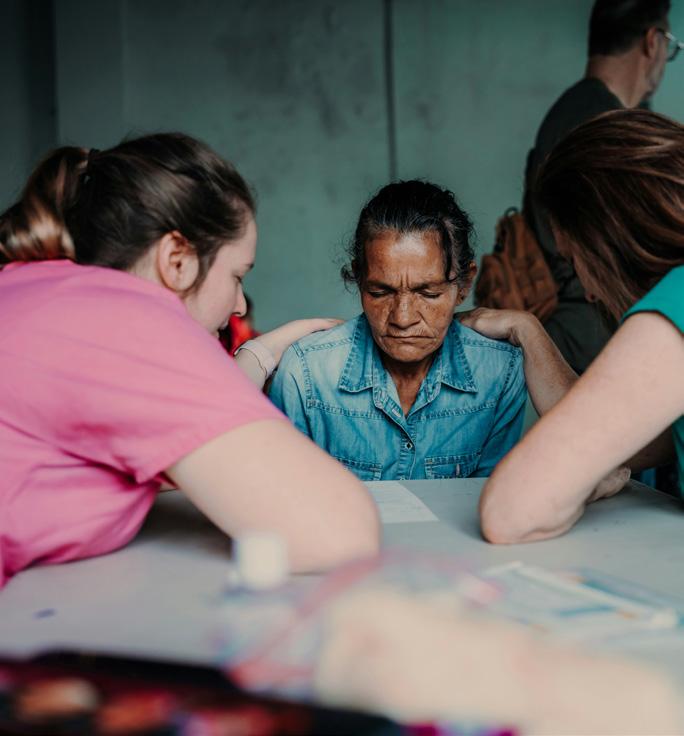


for something different—something that will fill the void in their lives. They are searching for a place to belong, to be loved, to be heard, and to be accepted. We need to be examples of the love of Jesus wherever we go (to work, the market, the restaurant, etc.) and in every situation (waiting in line, driving in traffic, dealing with a difficult person, or dealing with a tragedy). On good days and bad days, we are to communicate the love and hope we have in Christ. When people, especially the unchurched and the dechurched, encounter us, they should be drawn by this love and hope that permeates our lives.
Doors of Opportunity
There is a world at our doorstep. What are we going to do? We cannot afford to be selective when it comes to souls—God loves each and every one. His desire is for “all people to be saved and to come to the knowledge of the truth” (1 Timothy 2:4). The mission field is large, so here are some practical tips to help us get started:
• Pray for those who are lost. Paul urges Timothy to pray for all people and intercede on their behalf (1 Timothy 2:1). Do we take prayer (and our mission) seriously? Do we know prayer’s power to break down strongholds? Do we care enough to spend time interceding for the salvation of others? These are questions we all should be asking ourselves. What does it look like to love and care like Jesus? Do our hearts reflect this love?
• Meet people where they are. We must not expect the world to come to us. Often, without knowing it, we can make people feel uncomfortable coming onto “our turf.” But we encounter people daily in the marketplaces of the world—all those places we go outside of church. Be sensitive to the Spirit and ask him to open your eyes to see the opportunities
before you. In the process, engage people where they are. Jesus did this with the Samaritan woman in John 4, and Paul did so as well when conversing with the pagans in Athens (Acts 17:22–34).
Be sensitive to cultural differences.5 Not only do we meet people where they are, but we acknowledge with respect our cultural differences. Again, Paul demonstrated this in Athens. He did not criticize the Athenians for their beliefs, but he used that information as a launching point to share the gospel. In addition to that, Paul quoted their own poets to teach biblical truths (Acts 17:28–29). The world today is not as friendly toward Christianity, so finding common ground gives us a better chance of building a relationship for reaching those outside our circle.
• Acknowledge any existing prejudices. We like to think that we love and accept all people, but often we have underlying prejudices that we are not aware of. Paul, Peter, and many of the earliest disciples had an issue with the Gentiles. God gave Peter a vision that challenged his Jewish upbringing, which eventually helped him to overcome his prejudices (Acts 10:9–35). Prejudices are often based on our own pride in who we are (or think we are). For many people, national or cultural identity can become a source of underlying prejudices against others. We all need to take an honest look at ourselves and make this a matter of prayer. We should identify as Christian—Christ followers—above all else.
• Listen. We are busier than ever, and many do not slow down long enough to really listen to what others are saying. To listen means more than paying attention to some sound you hear; it is hearing something with thoughtful attention, intent on making sense of what is heard or said. Listening is a great evangelistic tool, and a listening ear is one of the greatest gifts we can offer to another. In his book Life Together, Dietrich Bonhoeffer writes, “Christians have forgotten that the ministry of listening has been committed to them by Him who is Himself the great listener and whose work they should share. We should listen with the ears of God that we may speak the Word of God.” Take note, listening is ministry
• Share the joys and sorrows of others. We may come from different backgrounds, but we all share feelings that are common to humanity—love, joy, fear, grief, hurt, disappointment, to name a few. Paul writes, “Rejoice with those who rejoice, weep with those who weep” (Romans 12:15). By sharing these moments with others, we show that we care.
• Do practical acts of service. Most of us have heard the statement, “Nobody cares how much you know until they know how much you care.” When we do acts of service to meet the needs of those around us, we are demonstrating the heart of Jesus, who set the example for us in his service to others (Mark 10:35–45).
• Share your testimony. When the time is right, be bold to share your story. In 1 Peter 3:15, we are told, “If someone asks about your hope as a believer, always be ready to explain it” (NLT). While this verse goes deeper, touching on apologetics, what Christ has done for you is practical theology. It is your story, and people can relate to stories. By sharing your story, you can impact the life of another.
• Invite them to church. Whether unchurched or dechurched, many individuals avoid coming because they do not feel welcomed. Different surveys indicate that many individuals (numbers ranging from 65 to 92 percent) would attend church if invited, especially if they were accompanied by the person who invited them. Let’s extend the invitation and be ready to welcome every visitor. May they encounter God’s love and grace when they walk through the church doors.




• Focus on love. Although listed last, this is most important. Jesus taught that two commandments— loving God and loving our neighbors as ourselves— fulfilled all the demands of the Law (Matthew 22:37–40). Love embodies the gospel message. Jesus, who laid down his life for us, said we are to love one another as he has loved us (John 15:12–13). Love begins in God’s house, but it must extend beyond the walls of the church—“for God so loved the world . . .”
This is not rocket science. All these tips (not an exclusive list) are practical in nature. No one needs a college degree to learn to listen or to show love and kindness. But we do need hearts fully transformed by the blood of Jesus Christ, a sincere commitment to his mission, a passion for souls, and a willingness to submit to the Spirit’s leading. It does require crucifying the desires of the flesh and taking up our cross daily to follow Jesus. In a broken and divided world, let’s be God’s loving agents of reconciliation.
1 Conrad Hackett, Marcin Stonawski, Yunping Tong, Stephanie Kramer, Anne Shi, and Dalia Fahmy, “How the Global Religious Landscape Changed from 2010 to 2020,” Pew Research Center, June 9, 2025, The World’s Religious Groups: How Their Sizes Changed from 2010 to 2020 | Pew Research Center.
2 Michael Graham and Jim Davis, “What Is the Great Dechurching?,” The Gospel Coalition, August 31, 2023, https://www.thegospelcoalition.org/ article/great-dechurching/.
3 Ibid.
4 “Millions of Unchurched Adults Are Christians Hurt by Churches But Can Be Healed of the Pain,” Barna Group, April 12, 2010, https://www. barna.com/research/millions-of-unchurched-adults-are-christians-hurt-by-churches-but-can-be-healed-of-the-pain/.
5 “What Does It Mean to Become All Things to All People (1 Corinthians 9:22)?,” Got Questions, last updated December 10, 2024, What does it mean to become all things to all people (1 Corinthians 9:22)? | GotQuestions.org.
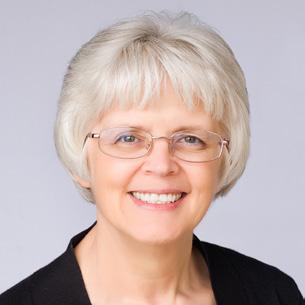
KATHERINE OSBORN,
DMIN
COPY EDITOR
Katherine currently serves as copy editor for Global Communications at the International Offices. Born in South Dakota, Katherine graduated from Tomlinson College in Tennessee and obtained a bachelor’s degree in secondary education from Western Oregon State College. She later earned a Master of Arts in Religion from Gordon-Conwell, and in 2022, she completed the doctoral program with Western Theological Seminary. Katherine and her husband, Glen, have two sons, a beautiful daughter-in-love, and two precious granddaughters, Xoi and Alytheia.
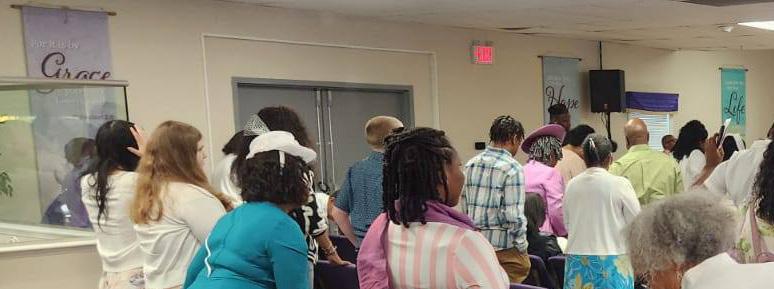
Reaching the Unchurched and the Dechurched
We cannot understand the needs and questions of the unchurched and dechurched populations without learning about their respective traits. The unchurched refers to individuals who have not attended a religious service within the past six months or more, while the dechurched refers to individuals who were previously active in religious services but have discontinued attending regularly. Some may argue that the unchurched population is merely uninformed and that they need to come to know about God. In contrast, they claim that those who have disconnected from the church are simply going through wounds caused by past church experiences, better known as “church hurt.” Although some of this may hold true, the important issue is how we can connect the difference between perception and reality in order to grasp the needs and questions of those who are unchurched and “dechurched.”
Hebrews 10:24 encourages us to think about how we can motivate each other to love and good works. Verse 25 emphasizes the importance of not neglecting to meet together, as some have formed the habit of doing; instead, we are to support and uplift one another, especially as we approach the coming day [of the Lord]. As we get to know the distinctive features of those who are unchurched and dechurched, we can find common ground to connect with them. By aligning our perspectives and seeking to understand their current
circumstances, we can communicate more effectively— with love (1 Corinthians 1:10). Only then can we grasp their needs and questions as we cultivate and maintain unpretentious and authentic relationships with them. A first step in this process is to consider new methods of establishing inviting environments for those individuals who have departed from the church or do not have a Christian faith background.
A person who has left the church may wonder about the indifferences they encountered within the church community. Perhaps a church leader or member failed to acknowledge significant events in this person’s life, such as a birthday, a personal achievement, or even a time of loss. The possibilities are limitless. We are not flawless, and while we may not have meant to overlook the needs of others, we sometimes do (Romans 3:23).
On the other hand, consider a person who does not have a faith background. They may question whether God or his followers would be accepting of them given their current lifestyle or past mistakes. The individual may have attended a religious service a couple of times. Still, a leader or congregant may have made them feel uncomfortable after seeing them smoking a cigarette near the church. We were not given the authority to pass judgment (Luke 6:37). Although we do not have the right to judge others, we occasionally find ourselves doing so. Such circumstances should ultimately encourage
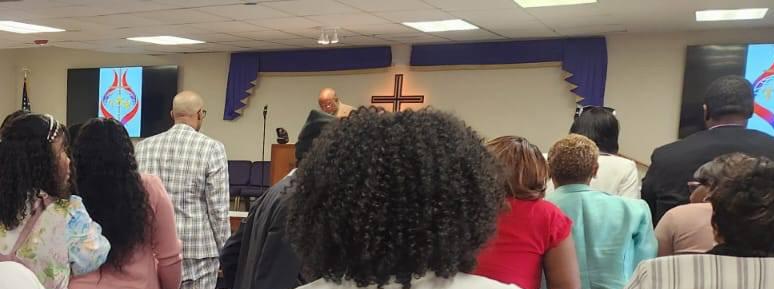
us to consider how we might engage with others in our communities, thinking of ways we can foster greater empathy and acceptance of individuals with differing backgrounds and perspectives.
One idea is to organize regular open-group discussions that promote honest conversations. Those participating in the open debate have an opportunity to learn more from one another—about faith, spirituality, and personal experiences—all while maintaining a non-judgmental attitude (Proverbs 1:5). When we create environments such as this, we are challenging the conception that the church shows disdain for individuals who dress, behave, or think differently than we do. Instead, it promotes open conversations with everyone, regardless of whether they share the same beliefs or not. The body of Christ is responsible for keeping in touch with every member and collaboratively developing strategies that help recall the small yet meaningful details that matter to each individual. This practice will ensure that the church stays connected with both new, existing, and returning members.

BRIDGETT REECE BROCKTON, MASSACHUSETTS
Suppose we find ourselves stuck in identifying how we can continually explore fresh approaches to reach the unchurched and the dechurched. In that case, we can consider stories of other ministries that have effectively engaged with people who may feel disconnected from the traditional church. We can consider organizations like the Brockton Church of God of Prophecy. Their Youth Ministry Department, in particular, provides an unconventional church experience that emphasizes biblical teachings and community involvement. Their unconventional church activities include hosting reading groups centered on books from the Bible, organizing youth camp activities, and planning community block parties for families and friends to join in.
Take time to examine other ministries and think about what makes them effective or ineffective. Discovering what is most effective can assist in identifying the best practices for your church community. After recognizing certain traits of the unchurched and dechurched populations, we can gain a better understanding of their needs and concerns. Then we can start making some initial efforts to close the gap between them and fellowship in the body of Christ.
Bridgett J. Reece, a current student at Spirit & Life Seminary, was raised in Boston, Massachusetts, where she earned her bachelor’s degree in criminal justice (University of Massachusetts—Boston). She later earned a Master of Science in Law (Abraham Lincoln University) and graduated with distinction. Dedicated to community involvement, Bridgett volunteers with the women’s ministry at the Brockton (Massachusetts) COGOP. She participates in their health fair to promote legal literacy among those who attend. Her aim is to cultivate meaningful relationships within her church and local community. Recently married, Bridgett cherishes family relationships and loves to cook. She uses this talent to bring family and friends together for fellowship and special occasions.

WIN THE LOST IN A WANDERING WORLD:
Reach the Unchurched and Dechurched for Christ
Across the globe, a growing phenomenon is reshaping how the church lives out its mission to reach two very distinct groups: the unchurched and the dechurched. While these two groups are both distanced from the local church, their stories differ. The unchurched are those who have never meaningfully attended church, often unfamiliar with Scripture, traditions, or the Christian community. In contrast, the dechurched once walked the aisles and sang the hymns and fellowshipped as believers but eventually drifted away—often due to hurt, disillusionment, burnout, or unanswered questions.
Reaching both groups requires sensitivity and strategy, recognizing their distinct paths and unique needs. The unchurched often respond out of curiosity and are moved by relational evangelism, while the dechurched need restoration, reconciliation, and safe spaces to heal. Both groups are accessible—they are our neighbors, coworkers, and even family members.
A Mission Fueled by the Spirit: The Heartbeat of COGOP
At the core of the Church of God of Prophecy (COGOP) is a commanding mission: “Reconciling the world to Christ through the power of the Holy Spirit.”
This is not a slogan—it is a sacred call, echoing the heartbeat of 2 Corinthians 5:18–20. We are not only recipients of grace but ambassadors of reconciliation. The church is not a resort for the righteous but a rescue station for the ruined, the rejected, the doubting, the wandering.
“Through the power of the Holy Spirit” is the essential key. The Spirit empowers believers to speak truth with compassion, to serve with joy, and to love without agendas. The Spirit convicts, draws, heals, and ultimately transforms. In our human strength, we may persuade—we may convince a person of their need to be reconciled. But only the Holy Spirit can reconcile the human spirit with the Father.
The Holy Spirit first convicts individuals of their sin and their need for a savior (John 16:8). The Spirit opens hearts to the gospel message, enabling people to believe in Jesus Christ (Acts 16:14). The Holy Spirit empowers believers, acting as Christ’s ambassadors, to share the message of reconciliation with others (2 Corinthians 5:18–20). The Holy Spirit seals believers as redeemed and reconciled to God, marking them as his own (Ephesians 1:13–14). The Spirit works within believers to transform their lives, enabling them to live in a way that reflects Christ’s love and forgiveness. In essence, the Holy Spirit is the divine agent who brings about the spiritual transformation necessary for reconciliation with God, both in individuals and through them to the world. We earnestly seek to move forward as a people full of the Spirit. We must have him to effect change in this world, one heart at a time. Our mission in the COGOP is to operate in bold evangelism, compassionate discipleship, and Holy Spirit-led ministry as lighthouses of reconciliation.
Current Strategies to Reach the Unchurched
and Dechurched
In a post-pandemic world, the COGOP is embracing innovative strategies to engage both the unchurched and dechurched:
• Digital Discipleship: From live-streamed services to interactive online Bible studies to one-call connectedness, churches are reaching people on their phones before they ever step foot in a sanctuary.
• Pop-Up Church and Community Prayer Stations: Pastors and teams are hosting worship services in parks, shopping centers, and neighborhoods, showing up where people are.
• Restoration Ministries: Congregations are launching small groups tailored specifically for those returning to faith—offering healing, space to wrestle with questions, and a pathway back to spiritual belonging.
• Youth Engagement: COGOP churches are creating relevant, Spirit-filled environments where young people are discipled and empowered to share their faith boldly.
• Social Impact: From food distributions and tutoring programs to disaster relief and global missions, churches are demonstrating the gospel before preaching it— showing Jesus in action.
The Global Momentum of COGOP
While many denominations in the West report declining attendance, the Church of God of Prophecy is experiencing powerful growth worldwide. Reports indicate that nearly 300 people come to Christ daily through COGOP ministries. In Latin America, Africa, Southeast Asia, and beyond, the Spirit is stirring revival.
Much of this growth is fueled by church planting, leadership development, and a deep commitment to Pentecostal holiness and global missions. Under Presiding Bishop Tim Coalter, the movement is leaning into its prophetic identity—praying, listening, and obeying as the Spirit leads.
Every Member a Minister
Reaching the unchurched and dechurched is not the job of pastors alone. Jesus said, “Go into all the world and preach

MARSHA ROBINSON EDITOR
the gospel." He still calls every believer. Here is how every member of the body can respond:
• Pray for the lost by name. Write them down. Intercede with compassion and urgency.
• Invite people to coffee, to conversation, to Christ. Extend friendship before you extend a formal invitation to church.
• Serve your community in visible, consistent ways. People do not care what we believe until they believe we care.
• Share your story. You do not need a pulpit to preach. Testimonies still carry power.
• Welcome people into safe, Spirit-filled spaces where they can grow, ask, and belong.
Become a Church Where the Lost Are Found
The Church must be a place where prodigals run home and strangers find family. In the COGOP, this vision is alive and well. Whether through a small rural church or a booming citycenter congregation, the goal remains: to reconcile the world to Christ.
Our challenge? Don’t just attend church—be the church. Be the hands that reach out, the voice that invites, the heart that listens, and the life that shines brightly with the Spirit’s fire. The world is hungry for hope. And the Church of God of Prophecy, empowered by the Holy Spirit, is God’s light in a dark world. We must win the lost at any cost.
Check your fold my Christian, Are the children in?
Are there yet some straying, Lost in blackened fields of sin; You must go and reach them, Go without delay; Soon the shades of night Will end the day.
Souls are crying, Men are dying, Won't you lead them to the cross?
Go and find them, Help to win them, Win the lost at any cost.
(Leon H. Ellis)
Marsha Robinson is the publications coordinator for the International Offices and managing editor of the White Wing Messenger. She is a contributing writer for the Regal Books anthology, I Believe in Miracles, and writes an online devotional, The Fragrance of Flowers. Marsha is an ordained COGOP minister actively working in prison ministry and community chaplaincy. Marsha serves as International Assembly Chief Clerk.

Pentecostal Spirituality: A Connecting Point for the Unchurched and Dechurched
The key to the Pentecostal church reaching the mission field of the unchurched and dechurched will not be so much a focus on Pentecostal theology, but rather on Pentecostal spirituality. In an article entitled “Pentecostal Spirituality,” Daniel Albrecht and Evan Howard posit, “Certainly Pentecostals reflect on theology. . . . However, what is most distinctive about Pentecostals is not their theology or their ecclesiastical life, but rather their sense of the experience of God. This being the case, it is appropriate to identify Pentecostalism particularly as a form of spirituality.”1 They continue, “Pentecostalism is a movement of the Spirit, and spirituality is fundamentally about life in the Holy Spirit.”2
To be clear, this in no way obviates the need for a robust theology that undergirds our doctrine and practice in the Pentecostal tradition. The Latin phrase fides quaerens intellectum, attributed to Anslem of Canterbury, is often translated as “faith seeking understanding.” The phrase
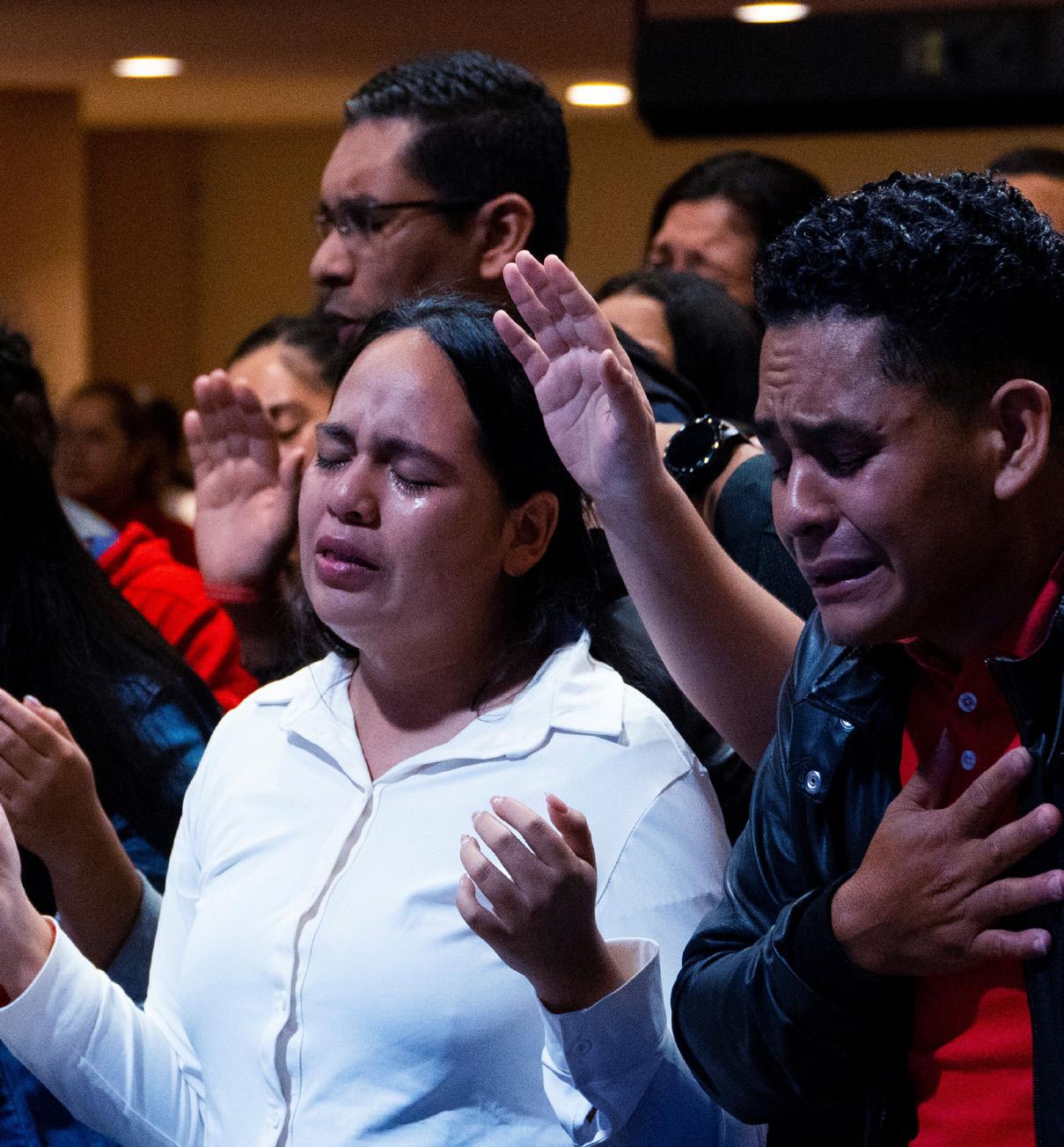
has been used as a working definition of theology. It also underscores the need for ongoing theological reflection. Theology is important because we not only need an inspired faith, but we need an informed faith as well.
Spirituality in America
The term “spirituality” has become somewhat of a buzzword in our contemporary vernacular. A Pew Research study conducted in 2023 reveals that almost 40 percent of Americans have no connection with organized religion. Despite their unchurched status, however, most nonetheless claim to be strongly religious or spiritual on a personal level. Roughly 70 percent of U.S. adults consider themselves to be “spiritual” and report that spirituality is a very important aspect of their lives. About 10 percent of those surveyed responded that they considered themselves to be spiritual but not religious. Additionally, 22 percent responded that they were neither spiritual nor religious.3
Pentecostal Spirituality
In his article entitled “Pentecostal Spirituality: Ecumenical Potential and Challenge,” David Albrecht used the following instructive definition of spirituality: “the lived experience which actualizes a fundamental dimension of the human being, the spiritual dimension, namely ‘the whole of one’s spiritual or religious experience, one’s beliefs, convictions, and patterns of thought, one’s emotions and behavior in respect to what is ultimate, or God.’”4 The definition proffered in the article is instructive because it captures the holistic nature of spirituality. It also contextualizes spirituality in what Paul Tillich refers to as “ultimate concern.” For Christians, that ultimate concern is the triune God incarnated in the person of Jesus Christ through the power of the Holy Spirit.
The Connecting Point
It is through this nexus between spirituality (ultimate concern) and the mission of the church to reconcile the world to God through the power of the Holy Spirit that Pentecostal spirituality can be brought to the fore and utilized as a connecting point with the mission field of the unchurched and the dechurched. Albrecht defines
spirituality as the “lived experiences of the Christian faith.”5 To that definition I would add, “through the power of the Holy Spirit.”
Steven Land writes in Pentecostal Spirituality: A Passion for the Kingdom, “The wholeness of the body of Christ given in the proper relation to the Spirit, Word, and community has as its corollary a view of spirituality which is the integration of beliefs, affections, and actions (of knowing, being, and doing). Indeed for a Pentecostal theology-as-spirituality, with a starting point in the Holy Spirit.”6 In chapter three of the book, Land analyzes what he refers to as three Christian affections: (1) gratitude as praise-thanksgiving, (2) compassion as love-longing, and (3) courage as confidence-hope. He argues that “the heart or integrating center of spirituality is located in the affections.”7 He presents these affections in a uniquely Pentecostal context. He posits, “They may be legitimately termed apocalyptic affections since they are constituted by the distinctive eschatological reality and vision of Pentecostals.”8
Land’s use of the term “apocalyptic affections” and its location within a uniquely Pentecostal context is a counter to the general concept of apocalyptic affections which refers “to how emotions and attachments are experienced and expressed in the context of an apocalyptic or post-apocalyptic setting. This can involve intense feelings of loss, fear, and despair, but also unexpected connections, resilience, and a reevaluation of what truly matters.”9 This aptly describes the condition of the world that needs to be reconciled to Christ through the power of the Holy Spirit.
My contention for a focus on Pentecostal spirituality, particularly one that centers on the affections as
presented by Land, is not a panacea, but may indeed be a way of framing the message of reconciliation in the context a spirituality that resonates with and addresses the hopelessness and despair that is felt and experienced, particularly by those who are not engaged with the church. May the Holy Spirit, the source of spirituality, lead and guide us.
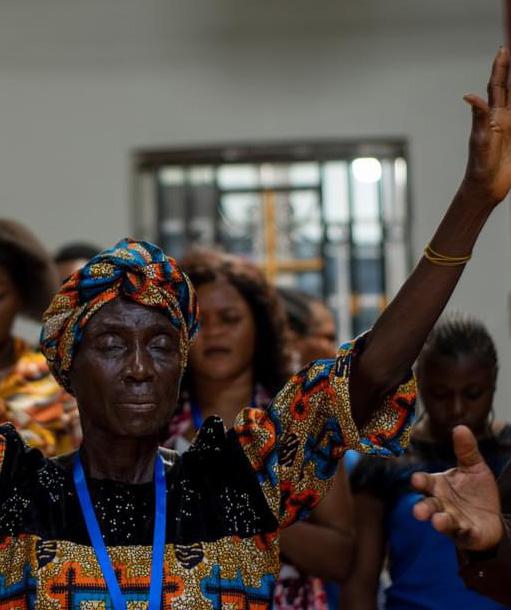
1 Daniel E. Albrecht and Evan B. Howard, “Pentecostal Spirituality,” in The Cambridge Companion to Pentecostalism, edited by Cecil M. Robeck, Jr. (Cambridge University Press, 2014), 235.
2 Albrecht and Howard, “Pentecostal Spirituality.”
3 Pew Research Center, Spirituality Among Americans, December 7, 2023, https://www.pewresearch.org/wp-content/uploads/sites/20/2023/12/ PR_2023.12.7_spirituality_REPORT.pdf.
4 Anne E. Carr, quoted by Daniel E. Albrecht, “Pentecostal Spirituality: Ecumenical Potential and Challenge,” Cyberjournal for PentecostalCharismatic Research 2, July 1997, http://www.pctii.org/cyberj/cyberj2/albrecht.html#N_3_.
5 Albrecht and Howard, Pentecostal Spirituality, 235.
6 Steven Land, Pentecostal Spirituality: A Passion for the Kingdom (Cleveland, TN: CPT Press, 2010).
7 Land, Pentecostal Spirituality
8 Land, Pentecostal Spirituality
9 “Toward Apocalyptic Experience: Images and Narratives of the End,” https://portal.research.lu.se/en/activities/towardapocalyptic-experience-images-and-narratives-of-the-end.


Handling the Past: EXPLORING SERPENT HANDLING IN THE CHURCH OF GOD MOVEMENT
On May 22, 2025, the Historical Society of Church of God Movements convened for its annual meeting at Peerless Church of God of Prophecy in Cleveland, Tennessee. Attendees representing various movements within the Church of God family gathered for fellowship, learning, and reflection on the rich and sometimes controversial history of the Pentecostal movement. While brief society business and warm acknowledgments opened the gathering, the heart of the event centered on a compelling presentation by Dr. Daniel Tomberlin, associate professor at Pentecostal Theological Seminary and first vice president of the society. His topic was “Serpent Handling in the Church of God.”

(Watch the complete lecture here.)
A Controversial Chapter Revisited
Dr. Tomberlin opened his presentation by clarifying his motivation. “This wasn’t about sensationalism,” he said. “It was about hermeneutics.” His research—now available in his book Snakes at the Altar—traces a roughly 20year period when serpent handling was practiced by some in the Church of God and even supported by key leaders. He emphasized that the focus of his study was limited to the years before 1923, when a disruption led to a major schism in the movement.
The practice was rooted in a literal interpretation of Mark 16:17–18, where Jesus says that signs will follow those who believe: “They shall take up serpents; and if they drink any deadly thing, it shall not hurt them.” For early Pentecostals who sought a “full gospel,” this was understood by some as a mandate for radical obedience. The power of God, they believed, would protect them from harm.
A. J. Tomlinson and the Rise of the Practice
Of particular interest to White Wing Messenger readers is the role of A. J. Tomlinson, the Church’s first general overseer. While most historical accounts
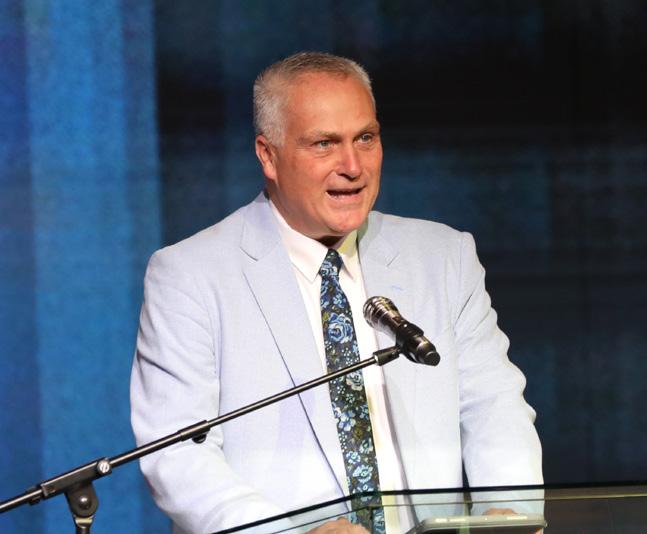
agree that Tomlinson himself never handled snakes, Dr. Tomberlin presented documentation that Tomlinson publicly affirmed the practice. In 1914, Tomlinson wrote of “serpents and burning fire handled with no harm to the saints,” noting these demonstrations as among the spiritual phenomena of the Pentecostal revival.
Tomlinson welcomed George Hensley, often credited with introducing serpent handling into the movement, as a licensed evangelist and offered enthusiastic reports of Hensley’s revivals. These included incidents where poisonous snakes were brought into meetings and handled during worship. Tomlinson’s reports described crowds witnessing these acts, with some participants being bitten and others declaring miraculous protection. In Tomlinson’s view, these were signs that validated the power of God.
However, Tomberlin highlighted an important nuance. Even while defending the practice as biblical, Tomlinson warned against “extremes and presumptuous undertakings,” urging discernment and prioritizing love, wisdom, and unity as greater signs of God’s work.
Theology, Trauma, and Turning Points
The presentation took a thoughtful turn as Dr. Tomberlin reflected on the long-term effects of the practice. “While we can talk about their faith,” he said, “the fact is that these actions traumatized the church.” Pastors serving in communities with serpent-handling legacies still face lingering stigma and confusion. He noted that even a century later, discomfort with the topic remains, which is evidenced by the need to self-publish his book.
As reports of injuries, deaths, and division mounted, voices both inside and outside the Church of God began to speak out. Notably, T. E. Clark’s 1934 article in the Church of God Evangel offered a new interpretive lens, suggesting that the “taking up” of serpents could be read metaphorically, representing triumph over evil,


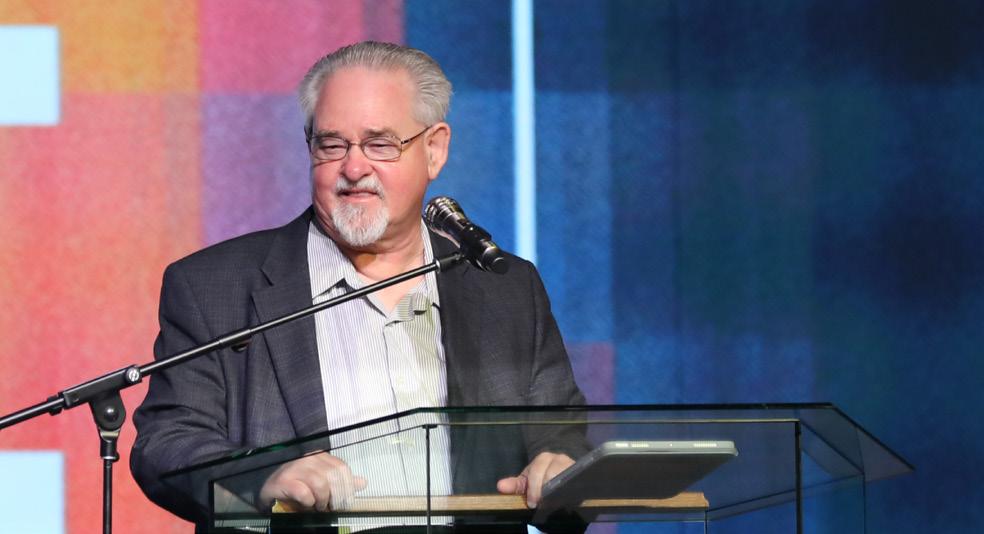
rather than literal acts of handling snakes. This marked a formal shift in church teaching and signaled the end of the movement’s institutional support.
Opposition also came from leaders of other Pentecostal denominations. G. F. Taylor of the Pentecostal Holiness Church and I. E. Bell of the Assemblies of God warned that serpent handling was akin to tempting God—likening it to Satan’s challenge to Jesus in the wilderness. They argued that while protection might come in accidental encounters, intentionally seeking danger was a misreading of Scripture.
Hermeneutics and Hope
At the heart of Tomberlin’s presentation was a plea for responsible biblical interpretation. He pointed to A. J. Tomlinson’s own evolving approach to hermeneutics. Tomlinson’s was one that integrated the intellect, the Holy Spirit, and lived experience. Tomlinson wrote that reading the Word without the Spirit leads to “lifeless services,” but acting without careful discernment can result in dangerous error.
Tomberlin concluded that the serpent-handling movement reflected both the zeal and vulnerability of early Pentecostals. “The most devoted and faithful believer,” he said, “can become a zealous heretic” if spiritual enthusiasm overrides prayerful reflection.
Why It Still Matters
Why revisit this uncomfortable chapter? Because understanding our past—its power, its excesses, and its theological journey—helps shape a more mature and Spirit-led future. As Pentecostals today continue to seek authentic expressions of God’s power, we must also seek wisdom in how we read, teach, and apply Scripture.
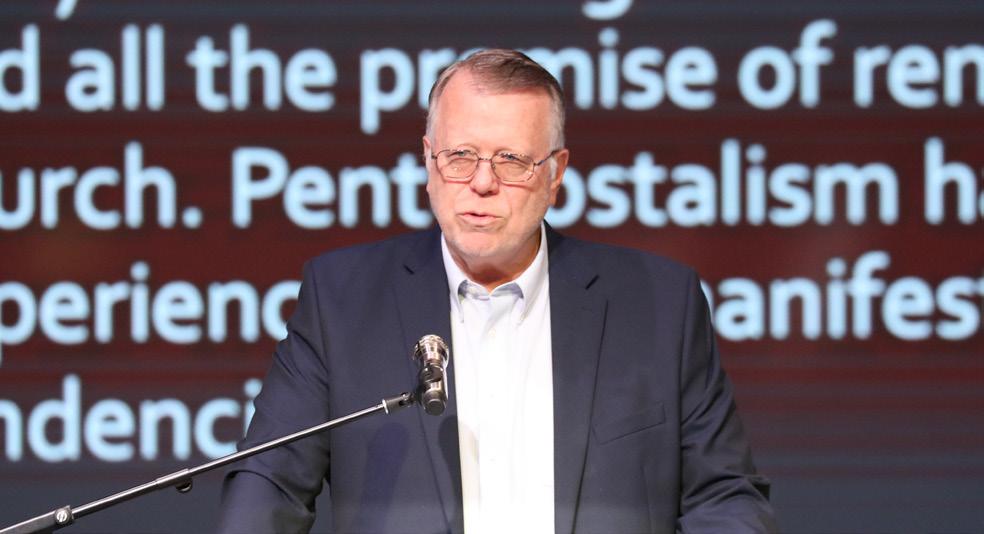
Serpent handling no longer holds a place in Church of God worship, but the conversations it sparked about divine protection, biblical interpretation, and the marks of true faith, still echo in theological circles. As Dr. Tomberlin reminded the gathering, “We must continue to interpret Scripture not just literally, but spiritually and experientially, allowing the Spirit to guide our minds, our hearts, and our hands.”
The Historical Society of Church of God Movements
Founded in 2002, the Historical Society exists to encourage the study, interpretation, and appreciation of the shared and diverse histories of Church of Godrelated fellowships. The society creates a space where pastors, scholars, and members can learn from one another and explore common origins while honoring distinct expressions of faith. Annual meetings are open to all, and membership is available for just $10 per year.
The society’s leadership includes representatives from multiple Church of God bodies, with Dr. Michael Padgett of the Church of God Mountain Assembly serving as president and Drs. Daniel Tomberlin, Elias Rodriguez, and Shaun McKinley completing the executive team, representing the Church of God and the Church of God of Prophecy.
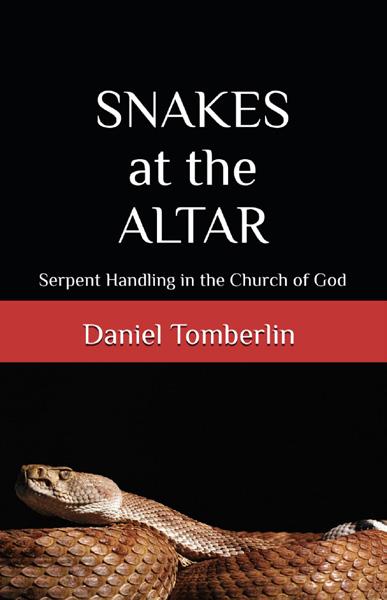
Snakes at the Altar
Serpent Handling in the Church of God
Daniel Tomberlin
Available for purchase here
BISHOP SHAUN MCKINLEY, PHD GLOBAL COMMUNICATIONS EXECUTIVE DIRECTOR
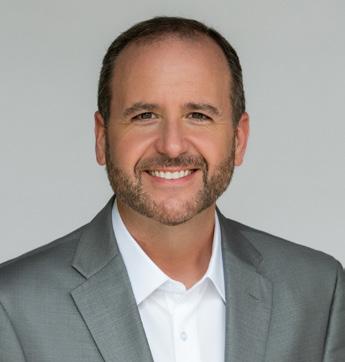
WE ARE THE CHURCH OF GOD OF PROPHECY

There are approximately 7,100 languages in the world. Each language is a thread in an intricate, vibrant tapestry of sounds and syllables woven through cultures and histories. Language is more than just a milieu of words and terms; it is foundational to our perception of the world, influencing how we think and interact. Language tells the story of a culture.
Some languages are widely spoken, bridging continents. Other languages are spoken by a few hundred people or less, isolated in one country or small region. Even within a single language, dialects can vary significantly, adding further richness to the linguistic landscape.
Our global family speaks 139 languages. The Global Communications division at the International Offices of the Church of God of Prophecy works to foster connection across borders and between languages. Executive Director Bishop Shaun McKinley, PhD, had a vision: to redesign and reissue the helpful, inspiring booklet We Are the Church of God of Prophecy in every language that a Church of God of Prophecy minister preaches. Thanks to COGOP donors who have given to the All Nations Fund, Global Communications has recently realized the completion of the translation of the booklet and other resources into twelve languages, including Haitian Creole, Ewe, Indonesian, Lingala, and Fɔn (Fon)—but there’s more to do!
Upcoming projects include Filipino, Nepali, Hindi, Telugu, Tamil, Urdu, Samoan, Korean, Navajo, Oromo, Punjabi, Swahili, Arabic, and Bulgarian.
Help break language barriers! Go to cogop.org and select “Give” and then “All Nations Fund.” One hundred percent of your gift supports these translation efforts. With God’s help, Global Communications will show the wonderful works of God in a tapestry of languages and make those resources accessible to our people for their kingdom work around the world.
Twelve languages are complete. Twelve languages are available for distribution. Twelve languages will be used for the glory of God. And if God is willing, this is only the beginning.
I would like to give toward the All-Nations Fund, praying that my gift furthers the gospel in many countries through the Global Communications division’s efforts.
GO TO COGOP.ORG AND SELECT “GIVE” AND “ALL NATIONS FUND” 100 PERCENT OF YOUR GIFT SUPPORTS THESE TRANSLATIONS
WE ARE THE CHURCH OF GOD OF PROPHECY
HIGHLIGHTED LANGUAGE: EWE
Spoken across the vibrant landscapes of Ghana, Togo, and Benin, Ewe is a fascinating tonal language that carries the rich heritage of the Ewe people. As part of the Gbe language family, it shares linguistic ties with Fon, Gen, and Aja, forming an important linguistic bridge in West Africa.
One of the most remarkable features of Ewe is its nine-tone system—a complex arrangement of high, medium, and low pitches, along with rising and falling intonations. This intricate tonal structure means that a single word can take on multiple meanings depending on how it is pronounced, making Ewe not just a means of communication but also a melodic experience.
The Ewe people trace their origins to present-day Togo. Over time, they migrated to various parts of Ghana and Benin, forming a thriving ethnic group with a strong cultural identity. Today, Ghana is home to the largest population of Ewe speakers, estimated at 3.8 million, followed by 1.7 million in Togo. Though its presence in Benin and Liberia is smaller (under 5,000 speakers), Ewe remains an integral part of the region’s linguistic landscape.
Ewe holds significant importance in Ghana and Togo, where it is recognized as a national language and widely used in education, literature, and mass media. The language employs the Latin alphabet, making it more accessible for literacy and documentation.
The Church of God of Prophecy (COGOP) has established a strong presence in Ghana, Togo, and Benin, serving as a pillar of spiritual growth and community development. The COGOP is known for its evangelical outreach, emphasis on holiness, and active missionary work in the region. In Ewe-speaking communities, COGOP has contributed to education, social welfare, and leadership training, often conducting services and programs in the local language to make worship more accessible.
From its ancient roots to its modern influence, Ewe is a symbol of identity, history, and resilience. Whether spoken in the bustling streets of Accra and Lomé or passed down through generations in remote villages, Ewe remains a melodic testament to the enduring spirit of its people.
With faith institutions like the Church of God of Prophecy helping to preserve traditions, uplift communities, and provide spiritual guidance, the Ewe language continues to be a cornerstone of both cultural identity and religious devotion in West Africa.

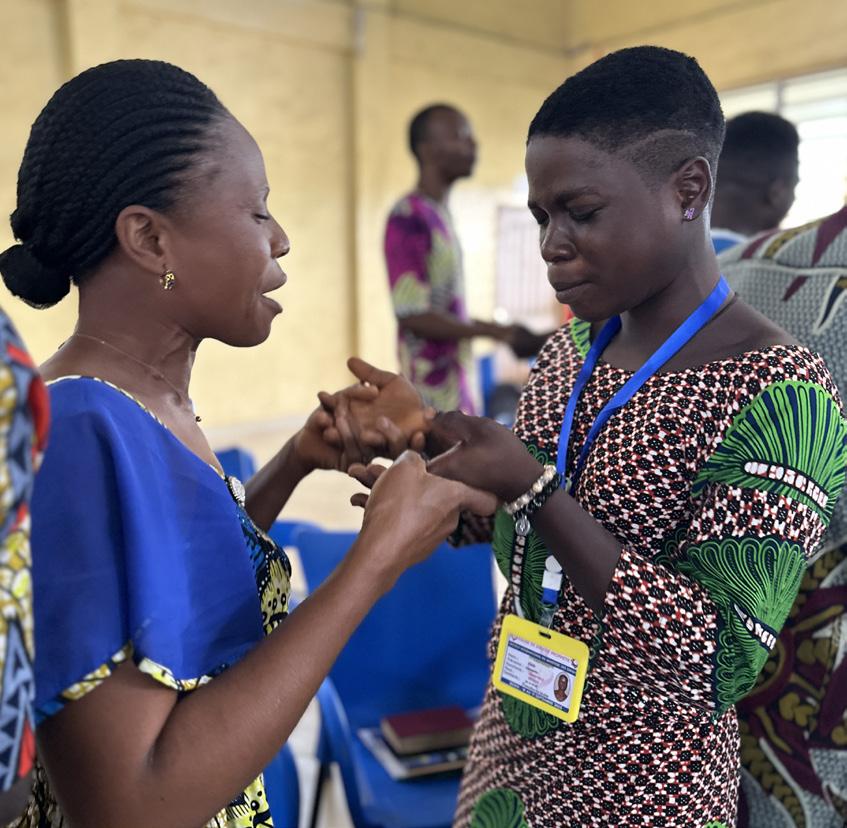



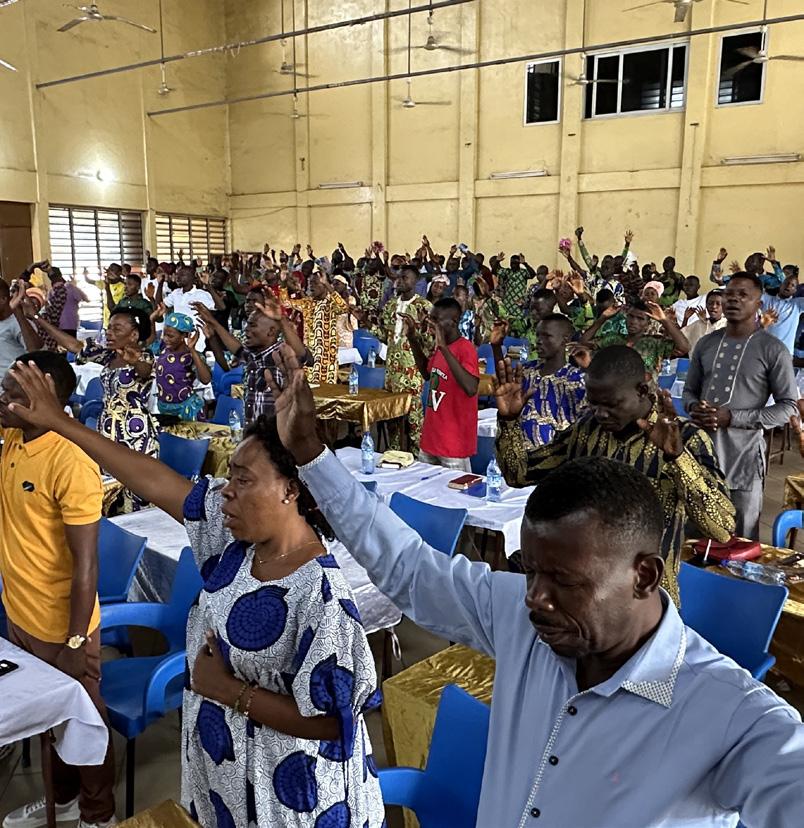

FOUR SIMPLE STEPS TO IMPROVE YOUR PREACHING THIS WEEK
PASTOR DARREN SCHALK | CLEVELAND, TENNESSEE
I believe the following with everything in me—anyone can become a good preacher. It is true that for some, it is a gift, but public speaking is also something that can be learned and molded and crafted. Second Timothy 2:15 offers a special challenge to those who preach and teach from God’s Word: “Do your best to present yourself to God as one approved, a worker who does not need to be ashamed and who correctly handles the word of truth” (NIV).
James 3:1 challenges us further: “Not many of you should become teachers, my fellow believers, because you know that we who teach will be judged more strictly.”
Obviously this speaks of learning to properly handle the Bible, dissecting and interpreting it with great care and study. But I believe it speaks also to the very craft of preaching because this is the mode through which we communicate the wonderful gospel of Jesus Christ. So, as we attempt to grow in our knowledge of God’s Word, I would also challenge us to grow in the craft of preaching. Here are a few tips I believe can help preachers of all ages and experience to hone their abilities.
1) STUDY AND RELATE
The best sermons often flow out of personal revelations. Personal revelations concerning God’s Word come from times of personal study. Personal study, then, is a necessity. If you are not learning something new, your congregation will not be learning anything new. Therefore, you must be a lifelong learner, studying God’s Word consistently and intentionally. But the second thing every good sermon needs is a personal understanding. We can understand that Jesus died for the world, but it means so much more when we understand he died for ME. Study and look for ways to relate your biblical
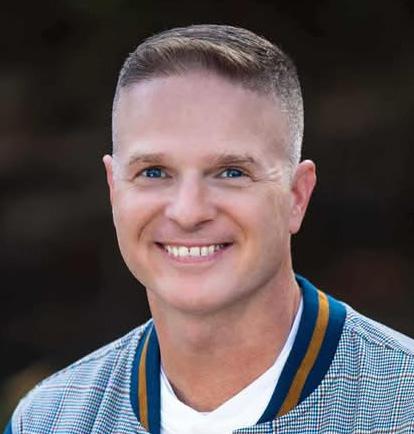
revelations to the experiences of your life. This can add applicability to some of the deeper truths of God and often leads to great illustrations.
2) LISTEN TO YOURSELF
I challenge many with this, and they always dislike the suggestion. It is painful, for sure. No one likes the sound of their own voice. But if you cannot sit through your own sermon, what about everyone else? This will help you weed out some of the “filler” words and phrases we often use that can be distracting. Preachers often (unknowingly) find a repeatable phrase or word they will throw out while processing and looking for the next line. Listening to yourself will help you hear these distracting fillers and replace them altogether.
3) PRACTICE YOUR WRITING SKILLS
If you would like to be a better preacher, become a better writer. Again, these are all skills that can be honed and developed. The main tool of every preacher is words. Romans 10:14 makes this abundantly clear: “How, then, can they call on the one they have not believed in? And how can they believe in the one of whom they have not heard? And how can they hear without someone preaching to them?”
Words are the heart of what we work with in preaching. So, work regularly to expand your vocabulary. Do a little research on how to be a better writer. Start a blog and keep at it. Practice your writing skills. Each step forward will make you a better communicator.
4) LEARN TO COMFORTABLY READ ALOUD
If you were to only take one of these suggestions to become a better preacher, I would recommend this one.
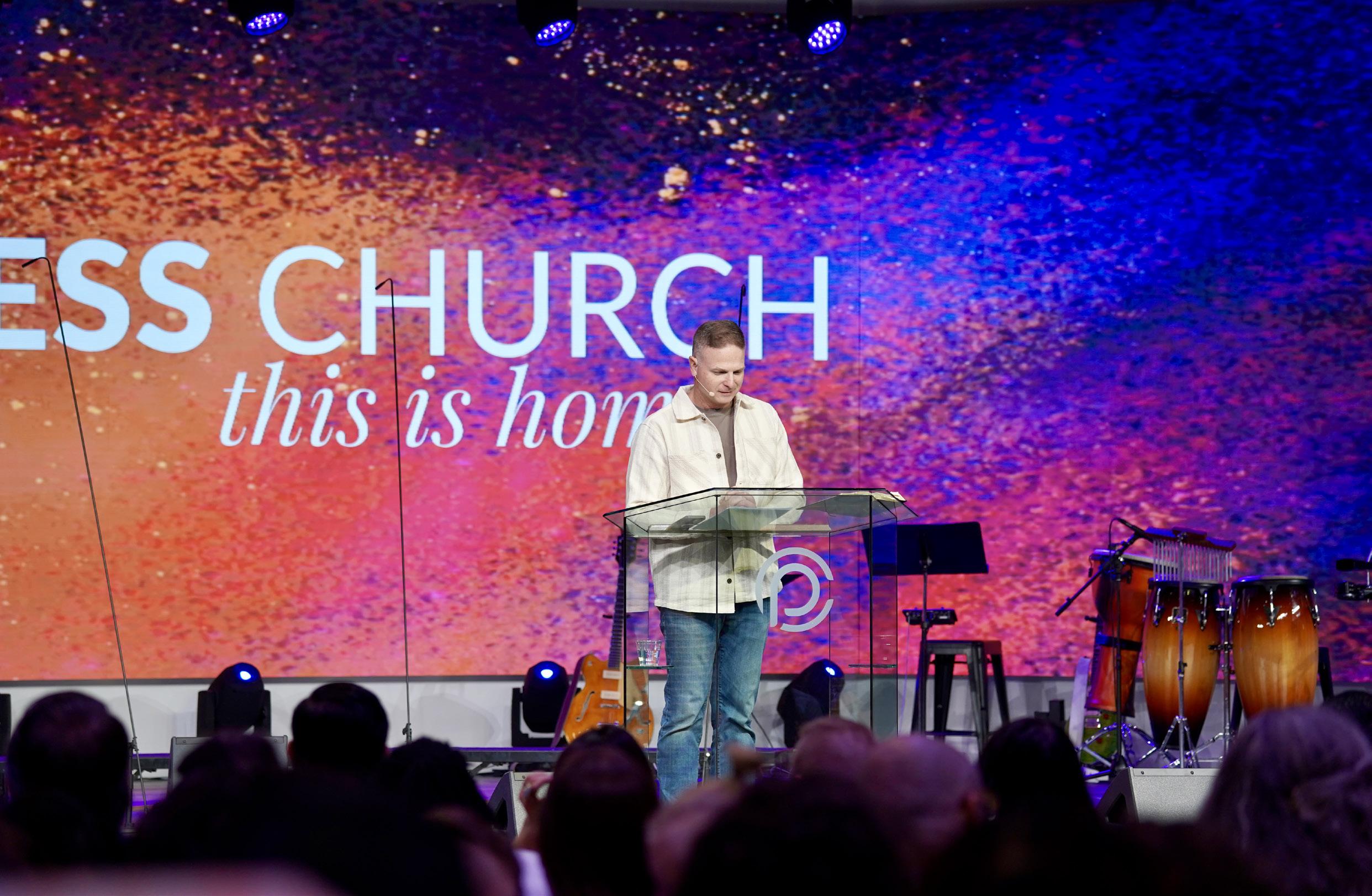
Listen to the preachers you love. Notice how they use notes and connecting phrases and keep the sermon moving rapidly. See if you can hear a difference from when they go off their notes to when they come back to their notes. The best preachers have learned to do this seamlessly so that the audience can hardly tell when they are reading and when they have stopped reading and are simply speaking. Practice this with a spouse or a friend. Write a common sentence, then read it aloud. Then, just say it as if you were in the middle of a conversation. Hear the difference and practice it until you can easily read in the same manner as you would speak. You will almost immediately become a better preacher.
As we study the Bible to show ourselves approved, I hope we will also study the craft of preaching. The message does not change, has not changed, and will not change—we preach Christ and him crucified. But God allows us preachers—the messengers—to wrap this message up in a pretty box each week. He allows our personalities, our insights, and our humor to shine
through as we present his Word. Let us be thoughtful and creative as we seek to carry this message—the greatest message. Let us not just study the Word we preach but also study the craft of preaching so we can become, as James challenged, workers who need not be ashamed.
FOUR SIMPLE STEPS TO IMPROVE YOUR PREACHING THIS WEEK
STUDY AND RELATE
LISTEN TO YOURSELF
PRACTICE YOUR WRITING SKILLS LEARN TO COMFORTABLY READ ALOUD


I AM A TESTIMONY OF THE GOODNESS OF THE LORD!
Some may know this (but a lot might not), but I used to have a nickname given to me by my family. That name was Little Lulu. I was nicknamed after a cartoon character who was always a crying, miserable, unhappy little girl. Some might think it was mean to call me by that name, but for those who know me, I was nicknamed rightfully so. I do not deny how I was. But that is just the point—it was how I WAS! My grandpa told me that I was so sad and upset when he stopped calling me Lulu; we laughed and I said, “But I’m glad you don’t now because I’m no longer Lulu.” He responded, “You sure aren’t.” Then I told him, “Every day I’m glad I’m not. Every day I’m so thankful!”
You see, I did not change who I was out of sheer willpower. Growing up, I would try to be happy, but I wasn’t. I would work on changing that part of me, but I couldn’t. Deep down, I was very unhappy, miserable, and crying on the inside. It was not until Christ came into my heart and changed everything that my life was transformed! He did what I could not do. It was not just taking away the misery and the unhappiness—he took the root cause of it all. He took the sin out of my heart. He changed my nature. He completely changed me!
I am no longer Lulu, and we are all okay with that! Charity Gayle has written a song that has been on my heart— Because of Jesus. It is such a beautiful song about what
Christ did and does in a person. The bridge strikes me in particular:
You bring freedom to the captives, Good news to the poor, Healing to the broken, And joy to those who mourn. You turn ashes into beauty, The ruins, You restore. I am a testimony Of the goodness of the Lord!
I AM A TESTIMONY OF THE GOODNESS OF THE LORD! Praise God! Thank you, Jesus, for saving me, changing me, and taking that Lulu and making her into a new person and giving her a new name—Lauren, child of God, daughter of the most high King! For that, I am eternally grateful!
If I were to add one more thing, it would only be to include a verse straight from the Word of God. The Word is alive, and it stands true and will stand true through time. Second Corinthians 5:17 says, “Therefore if any man be in Christ, he is a new creature: old things are passed away; behold, all things are become new.” Believe this and it will be true for your soul too, and you will become a testimony of the goodness of the Lord! May God bless you.
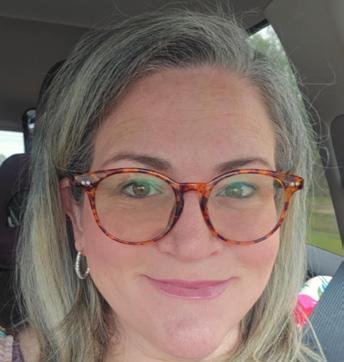
LAUREN MCKEE
HERITAGE MINISTRIES
We are thrilled to extend our hea r tfelt gratitude to all our amazing pa r tners who have suppo r ted Heritage Ministries through the first half of this year. Your contributions have been instrumental in the maintenance and beautification of our cherished historical prope r ties, including Fields of the Wood, First Assembly House, Shearer Schoolhouse Site, and the Holy Ghost Marker Site.

HERITAGE MINISTRIES ASSOCIATION
If you have not yet joined the Heritage Ministries Association for this year, there is still time! We have adjusted our membership levels, so please take note of the changes. Remember, our memberships align with the calendar year and sta r t fresh in Janua r y.
Thanks to your incredible support, we have refreshed the restrooms near the gift shop at Fields of the Wood, have begun restoration of monuments (check out the Fields of the Wood page for more details), and hired an additional maintenance staff member for the summer. Many other smaller projects have been accomplished because of your partnership.
I f you have not joined for 2025 yet, now is the perfect time! Visit cogopheritage.org and join today.
FOWRENEW
Donations to Fields of the Wood and our historical properties revitalization can be made anytime at fowrenew.org . Through FOWRenew, we are blessed by contributions from people all over the world, helping us renew our properties. Every donated dollar makes a significant difference.
MONTHLY DONOR
As we budget each month for our ministry, we are seeking individuals, churches, or businesses to partner with us on a monthly basis. Would you consider joining this vital group? A recurring donation is easy to set up, and once completed, you will not have to worry about it again. A huge THANK YOU to those who have already embraced this giving option.

FIRST IMPRESSIONS MATTER:
How Churches Can Create Welcoming Spaces for Everyone
My kids are currently in their tent-making phase. They are constantly pulling out blankets and chairs and whatever else they can get their hands on in order to build a makeshift fortress. Yep, I have two little apostle Pauls in my house (a Bible joke, of course).
I don’t mind it, but what I do mind is the amount of stuff they try to bring into the fort. I watch as they spend hours going back and forth, getting toys, games, snacks— anything that isn’t nailed down! It’s like watching two beavers build a dam. By the end of it, they can’t fit into their own tent.
What is the point of building a tent if the people it is meant to house cannot fit in it?
A more relevant question is, what is the point of inviting people to church if we have not built the church with them in mind?
Getting the Obvious Questions Out of the Way
Yes, I know the church is not a building, program, or an event. The church is the people of God gathering around the Word of God in order to fulfill the will of God.
No, this is not a pitch to be more “seeker-sensitive.” I believe the church does not exist for lost people nor saved people; it exists for God.
And, no, this is not a veiled attempt at getting you to invest in the latest tech and a state-of-the-art campus to compete with other churches in your area.
The reality is, we can worship God and preach his Word in any environment. That is why the gospel has spread like wildfire for the past 2,000 years. Good news does not need a welcoming space. However, people do, and ministry is all about people.

Your church campus is your biggest tool for people to encounter God. But if it is not welcoming, you will sacrifice the number of people you could reach. We do not need to be sensitive to peoples’ desires, but we must be sensitive to God’s. The heart of God is for people, and we must steward our campuses well if we want to show that we value them [the people] as well.
God is in the Details
Our church is currently in a sermon series on the tabernacle. Chapters 26–28 in Exodus are the kind of chapters you skim during your Bible reading plan because they are loaded with measurements and instructions for everything Moses is to build—everything from curtain rings to meat forks (for the record, all of the forks in my house are meat forks). Regardless, Exodus reveals to us that details matter to God, and what takes place in his tabernacle matters as well.
Below are several ways you can be more intentional to create a welcoming environment for the people the Lord is sending to your church, and you will notice, most of it is about the details:
1. Clean the outside of the cup.
Does the outside of your campus communicate what happens inside? Many more people will see the outside of your building than will ever see the inside. You can decrease the difference between those numbers by letting people know this building is for them! Consider doing the following:
• Put up roadside flags or signage.
• Place volunteers in parking areas to assist people and welcome them, especially on rainy days when they can escort people under umbrellas.
• Clearly mark spaces for guests to park that are closest to your entrance.


A couple of years ago, we tore down our ballfield fence to increase parking for our services. I knew most people would just continue to park in spaces and leave the field for visitors and latecomers, so I commissioned our people to fill up the ballfield first, which meant parking the furthest away and walking a longer distance. I told them every time they drive onto that field, it was a prophetic declaration that the Lord is sending us the harvest, and we are making room. Now, that field regularly fills up on Sundays, and some of our staff even park there throughout the week just to keep declaring!
2. Eliminate the entry of dread.
The most difficult part of going somewhere for the first time is not knowing what to expect when you come through the door. Curb the anxiety of your guests by combatting that anxiety head on:
• Open your front doors wide leading up to gatherings.
• Place volunteers outside to welcome people as they come in.
• Use signage to clearly mark where people are supposed to go, especially those with children.
• Designate a central area for first-time guests to go for questions, and consider having a gift for every person or family on their first visit.
3. Set the environment.
Create an atmosphere that dismisses the nervous tension visitors may feel:
• Have music playing, not loudly, but enough to eliminate awkward silence. Stores, malls, and marketplaces all do this.
• Designate people in your church as engagers to welcome and strike up conversations with people as they are seated.
• Utilize your screens to scroll pictures of previous and upcoming events to communicate to people that this is a place to get involved!
4.
Refresh and declutter.
Look at your entire campus with fresh eyes. Invite someone who has never been before to point out things that seem out of place—cords all over the stage, clutter that has been in corners for decades, discarded junk behind the building. Identify [the problem areas] and simplify! Pay particular attention to these items:
• High-traffic areas
• Children’s rooms (Parents will not come back if the kids’ areas are a mess.)
• Lobbies/entry ways
• Outdated pictures and décor (Minimalism is in! You are better off having nothing on the walls than having things that communicate your best days are behind you.)
Conclusion
Bottom line: Take a lesson from God’s playbook and get into the details of the space you are inviting people into. Enlist people within your church who can assist you in stewarding your campus well, so it becomes more inviting to the community.
Learn from my tent-making kids; prepare your gathering space while keeping at the forefront of your mind the people who will be gathering in it!



NO COMIC BOOK STORY: YOUR FAITH IS REAL!
Daniel 3:16–18 (NIV) records, Shadrach, Meshach and Abednego replied to him, “King Nebuchadnezzar, we do not need to defend ourselves before you in this matter. If we are thrown into the blazing furnace, the God we serve is able to deliver us from it, and he will deliver us from Your Majesty’s hand. But even if he does not, we want you to know, Your Majesty, that we will not serve your gods or worship the image of gold you have set up.”
Batman, Superman, Iron Man, and Hercules—all characters from comic strips in the 1960s and 1970s—mesmerized many of us in our childhood. Later, they became network cartoons and television shows, and in time, they came back as blockbuster movies, grossing millions of dollars in theaters. People from all walks of life flocked to the theaters to see these feel-good movies with larger-thanlife characters who took a stand against crime, injustice, ruthlessness, and evil to overcome and seize the day. Each of these characters had a superpower—an ability beyond normal human capacity. Batman had his utility belt; Superman could fly, was faster than a speeding bullet, and was more powerful than a locomotive; Iron Man had his impenetrable suit; and Hercules, a demigod (half human, half god) from Greek mythology, was stronger than a hundred men. These comic book characters, whose stories were made into movies, offered moviegoers a temporary escape from reality, troubled times, and the perils of life. They also evoked a wistful hope for a time of peace and hope for a rescuer—someone to come and make life better, or at least make life feel normal. Most of us love these feel-good movies.
In the Bible, we read the stories of other characters—real ones. In the book of Daniel, the three Hebrew boys—Shadrach, Meshach and Abednego—refused to bow to the wickedness of their day and were thrown into the fiery furnace because of it. Daniel himself was thrown into a den of lions because he prayed and honored God while refusing to worship the king, yet he surfaced from the lions’ den without harm (Daniel 6). And what about Samson? He lost the presence of the Lord, his power, and his sight because of compromise with Delilah, but when he later sought the Lord, God restored his strength, and Samson was able to overthrow the Philistines and their god, Dagon (Judges 16:23–31). Like the movies, these stories just feel good. And it would be easy to look at these and other men and women in the Bible like we look at the comic book heroes. It feels good to read about such hope and victory. The difference is, none of these—Shadrach, Meshach, Abednego, Daniel, nor Samson— were comic book characters. They were not invincible fictional characters who could never die. Their stories are not simply feel-good stories. They are stories of real people with real threats against their lives. Their suffering was real, but so were their victories; everything about their lives was real.


The Bible and history reveal that many people have suffered for the gospel, but they held on to their faith in God and saw great victories. Hebrews 11:1–39 tells us that faith pleases God, and through acts of faith, ordinary people (like you and me)
toppled kingdoms, made justice work, took the promises for themselves. They were protected from lions, fires, and sword, turned disadvantage to advantage, won battles, routed alien armies. There were those who, under torture, refused to give in and go free, preferring something better: resurrection. Others braved abuse and whips, and, yes, chains and dungeons. We have stories of those who were stoned, sawed in two, murdered in cold blood; stories of vagrants wandering the earth in animal skins, homeless, friendless, powerless—the world didn’t deserve them! (Hebrews 11:33–38 MSG)
All these men and women placed their faith and trust in God’s care, against all odds, and made a stand against the evil of their day. They faced real suffering and real threats of death, but more importantly, the God they worshipped and served was even more real. They had real faith in him, and that faith (in God) was their superpower! Hebrews 11:39 (NIV) tells us, “These were all commended for their faith.”
Your challenges, the threats in life, and your suffering are all real, but the Lord God that you worship and serve is even more real! Your superpower is faith. You have it, and it is real. But, as my pastor would tell you and me, “You just need to stretch it, exercise it, use it!”
Gospel Artist Vanessa Bell Armstrong says it well. In “Faith that Conquers,” she sings,
I have the faith to see the invisible Expect the incredible

Receive the impossible . . . Faith to vision my freedom . . . Faith to reach the unreachable Faith to fight the unbeatable Faith to remove the unmovable Faith that stands the invincible Faith that can conquer anything
https://www.youtube.com/watch?v=QVhUjmj2kzQ
When I was a young boy, my father would often sing a song written by Jimmy Swaggart, “Got Any Rivers”:
Got any rivers you think are uncrossable?
Got any mountains, you can’t tunnel through? God specializes in things thought impossible, And He can do what no other power can do.
Jesus excised this type of faith when he confronted the Jewish leaders at the Passover:
Jesus answered, “Tear down this Temple and in three days I’ll put it back together.” They were indignant: “It took forty-six years to build this Temple, and you’re going to rebuild it in three days?” But Jesus was talking about his body as the Temple. Later, after he was raised from the dead, his disciples remembered he had said this. They then put two and two together and believed both what was written in Scripture and what Jesus had said. (John 2:19–22 MSG)
I encourage you along with the writer of Hebrews, “Cast not away therefore your confidence, which hath great recompence of reward” (Hebrews 10:35 KJV).
Your faith is real. Like Jesus, EXERCISE IT! Then watch God do the incredible.
BISHOP JEFFERY DAVIS LEADERSHIP DEVELOPMENT AND DISCIPLESHIP EXECUTIVE DIRECTOR
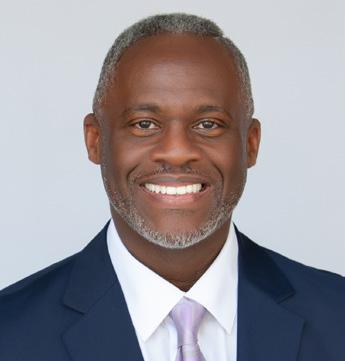










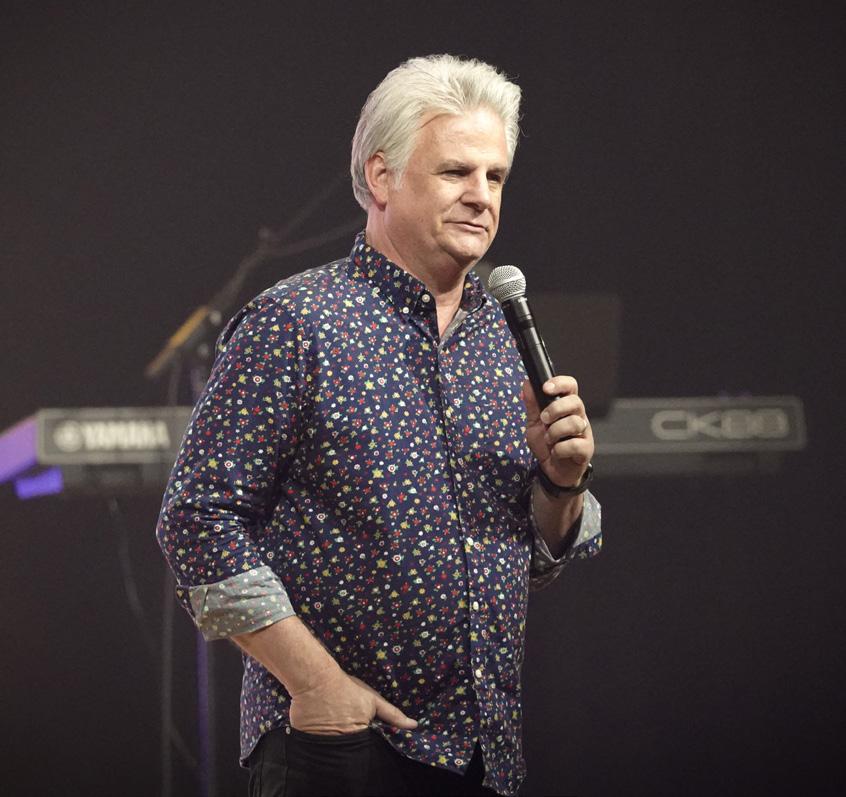

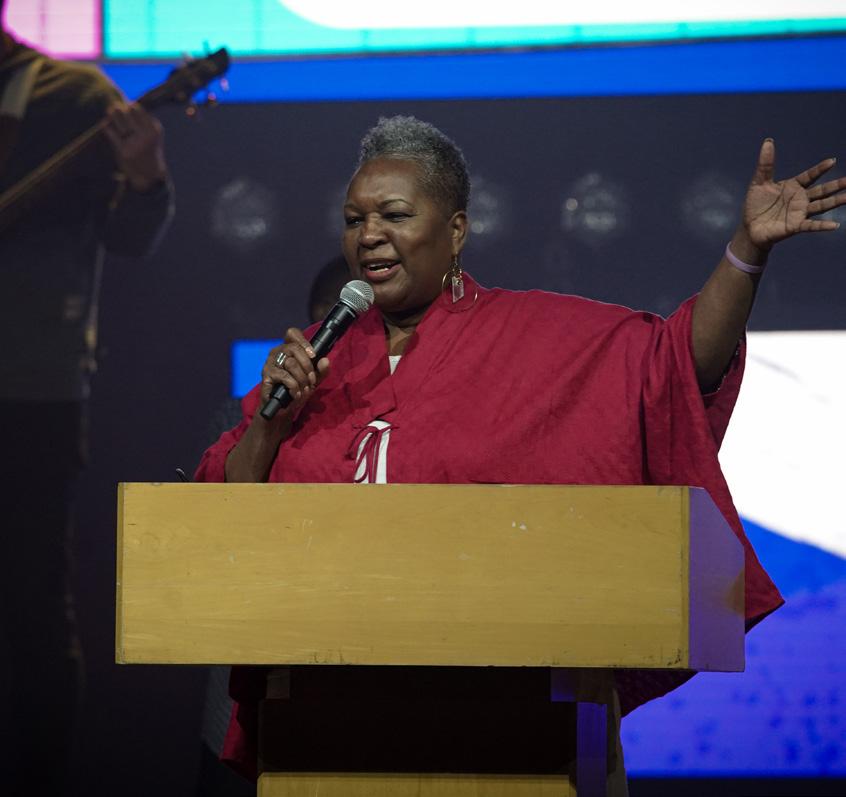

RISE YOUTH CONFERENCE RECAP:
AN INSPIRING WEEKEND OF GROWTH AND FELLOWSHIP
The RISE Youth Conference was a transformative experience, uniting young people from diverse backgrounds for an impactful weekend of worship, learning, and community. From registration to the closing session on Sunday morning, the energy and excitement were undeniable. Over three days, participants were challenged to “RISE” in their faith, leadership, and calling through inspiring messages, dynamic worship, and engaging workshops.
FRIDAY: AN INSPIRING START
The weekend began with registration as hundreds of young people flooded the venue, eagerly anticipating what God had in store and the exciting activities ahead. The excitement was contagious as friends reunited from around the world, new connections formed, and anticipation for the first service grew.
At 6:00 p.m., the conference launched with a vibrant worship session, setting the stage for a memorable night. The talented worship team created an atmosphere where hearts were open and ready to receive. Following worship, Reverend Palma Hutchinson delivered a compelling message on “RISE to Prepare,” urging attendees to embrace spiritual preparation to step into their God-given callings. The message resonated deeply, sparking reflection and commitment among the youth.
SATURDAY: A DAY OF LEARNING, CONNECTION, AND ENJOYMENT
Saturday kicked off with an engaging 10:00 a.m. session. Attendees gathered to worship and to hear from inspiring speakers, preparing their hearts for a full day. Afterward, everyone headed to Ross’s Landing a scenic riverside spot in Chattanooga—for an afternoon of connection, enjoyment, and relaxation.
At Ross’s Landing, the atmosphere brimmed with joy. Giant inflatable obstacle courses offered youth a fun way to bond, while a free Chick-fil-A lunch kept everyone energized. This time of fellowship allowed attendees to deepen relationships, make new friends, and enjoy the presence of fellow believers.
While many young people relaxed, those interested in ministry and leadership attended the workshops offered from 1:30–3:00 p.m.:
• Multiply 2030: The goal of this workshop, led by North America Presbyter Brian Sutton, was to equip NextGen leaders who felt called to plant new churches. General Presbyter Benjamin Feliz offered the same session in Spanish, ensuring accessibility for Spanish-speaking attendees.
• Young Leaders Forum: Led by Bishop Jeffery Davis from the Leadership Development and Discipleship department, this interactive session explored the future of the Church of God of Prophecy and the opportunities available for young leaders.
As these workshops focused on leadership and church growth, many of the youth continued bonding at Ross’s Landing in a relaxed setting.
In the evening, attendees returned to the convention center for a second set of workshops, scheduled from 5:30–6:30 p.m., targeting specific ministry areas:
• Youth Missions Workshop: Led by Global Missions Ministries Coordinator Cathy Payne, this session explored global missions and encouraged those called to serve.
• Children’s Ministry Workshop: This session, led by International Children’s Ministries Director Joy Hensley, highlighted the importance of children’s ministry and how to serve young believers.
• Youth Leaders Meet & Greet: Led by International Youth Director Kirk Rising, this gathering allowed youth leaders to network, discuss training, and share ideas for strengthening youth ministries worldwide.
After a full day, attendees gathered for the 7:00 p.m. session. The worship team led a vibrant time of praise, preparing hearts for the word. Pastor Zach Kelly delivered a stirring message on “RISE to Love.” His words challenged attendees to embrace Christlike love in their daily lives and to let it be the foundation of their faith journey. The night was filled with reflection, conviction, and renewed commitment to love others as Christ loves us.

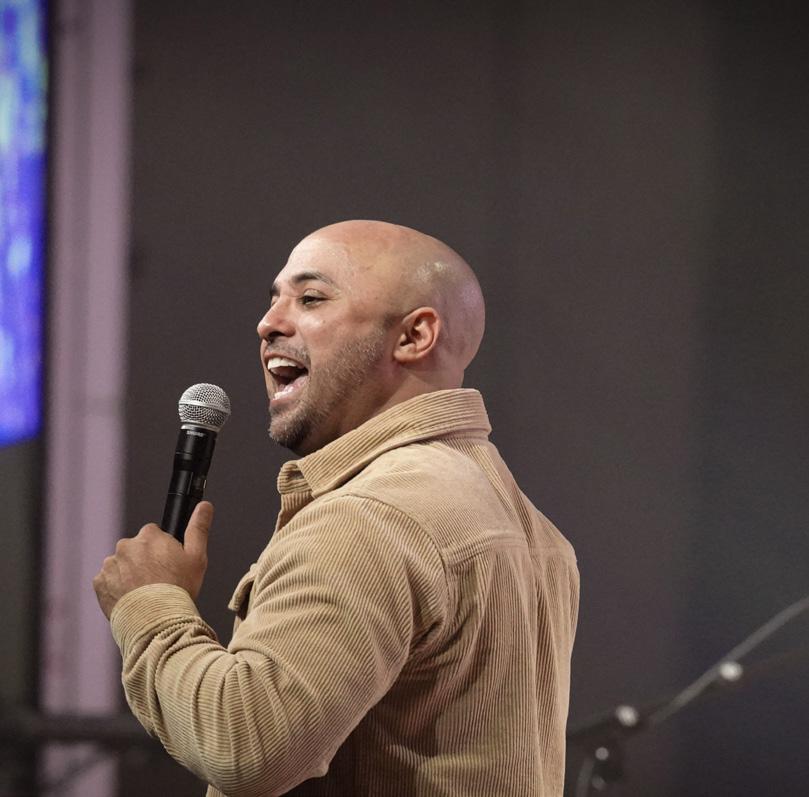




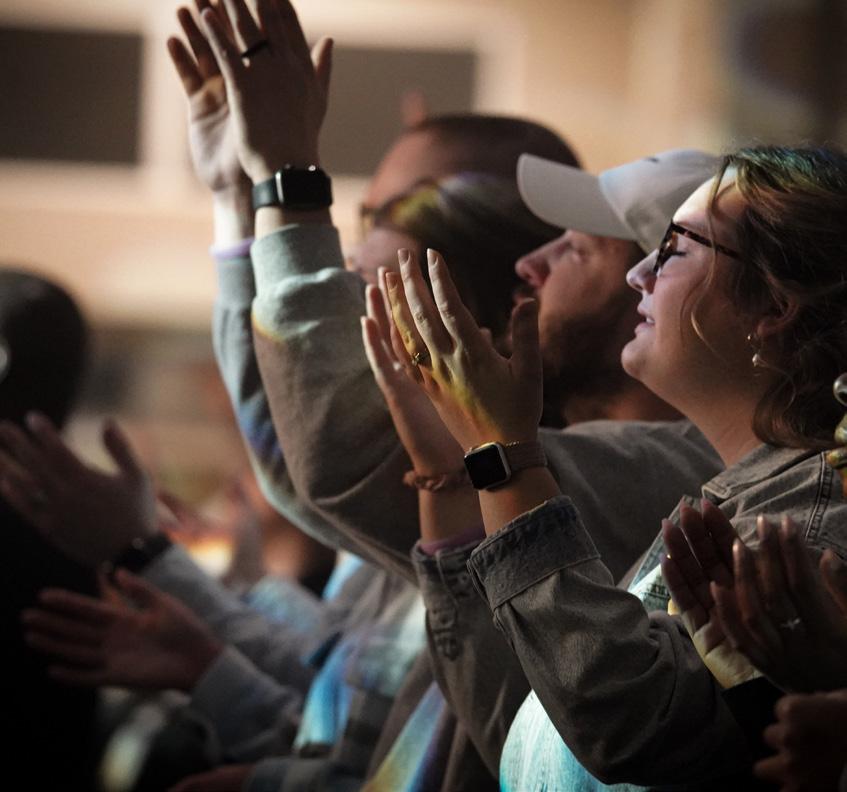






SUNDAY: A CALL TO RISE AND GO
The final day arrived quickly but was one of the most memorable moments of the weekend. This final session on Sunday morning united everyone one last time. Worship set the tone as hearts lifted in praise and gratitude for all God had done.
Bishop Brian Sutton delivered the closing message on “RISE to Go.” His call to action challenged attendees to apply their weekend experiences to daily life. He urged them to RISE in faith, embrace leadership, and boldly pursue their calling beyond the conference.
CONCLUSION: A WEEKEND TO REMEMBER
The RISE Youth Conference was a life-changing experience for all who attended. From the first moments of registration to the final Sunday session, attendees






were inspired, challenged, and empowered to RISE in faith, love, and leadership.
Throughout the weekend, we worshiped together, learned from exceptional leaders, and built lasting relationships. Attendees from around the world shared conversations, laughter, and unforgettable moments, deepening connections and creating cherished memories. Inspiring messages from Zach Kelly, Palma Hutchinson, and Bishop Brian Sutton provided clear direction, encouraging young people to love, prepare, and go into the world with bold faith.
With hearts full and spirits uplifted, RISE attendees left knowing they were part of a larger movement—a generation rising to make a difference for Christ. As we look ahead, we believe the impact of this conference will continue to unfold in the lives of those who participated as they carry the message forward and rise to God’s calling.

AVA LYNN

IN HIS PRESENCE
DECEASED MINISTERS | REPORTED AS OF JULY 1, 2025
ALVERINE DENNIS
Canada East
June 11, 2025
Licensed minister for 23 years
EUSTACE G. LEVY
Canada East
May 16, 2025
Licensed minister for 46 years
EWAN A. WALKER, SR.
Canada East
March 4, 2025
Licensed minister for 24 years
THELMA M. RIPPER
Arkansas
May 15, 2025
Licensed minister for 53 years
PETER FORBES
Florida
November 15, 2007
Licensed minister for 33 years
DORA M. ROLLE
Florida
January 1, 1990
Licensed minister for 1 year
ISABELLE Q. ROLLE
Florida
May 11, 2025
Licensed minister for 52 years
JOHN B. WOOTEN
Maryland
June 5, 2025
Licensed minister for 54 years
NEWTON ANDERS
North Carolina
October 16, 2015
Licensed minister for 54 years
DONNIE R. HINES
North Carolina
May 15, 2025
Licensed minister for 45 years
JAMES B. LANTER
North Carolina
June 4, 2025
Licensed minister for 52 years
MARION C. FROST
Oklahoma
September 19, 2024
Licensed minister for 62 years
LOIS J. PEBWORTH
Oregon
September 20, 2022
Licensed minister for 59 years
PHILLIP M. DODSON
Tennessee
April 19, 2025
Licensed minister for 20 years
CLAUDELL A. HILL
Tennessee
June 20, 2025
Licensed minister for 14 years
WAYNE L. PIERCE
Tennessee
May 31, 2025
Licensed minister for 7 years
JOE A. CAMERON
Texas
March 23, 2025
Licensed minister for 51 years

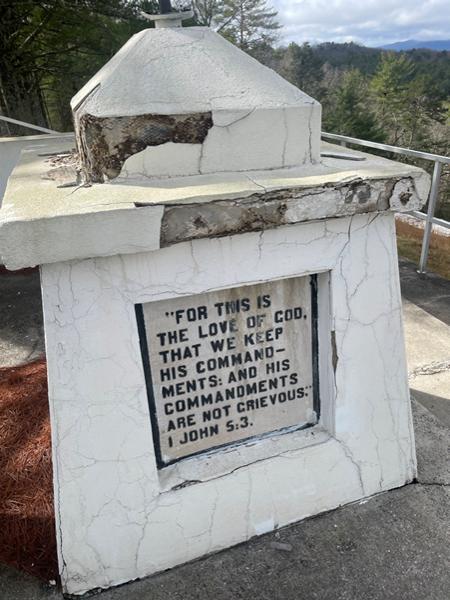
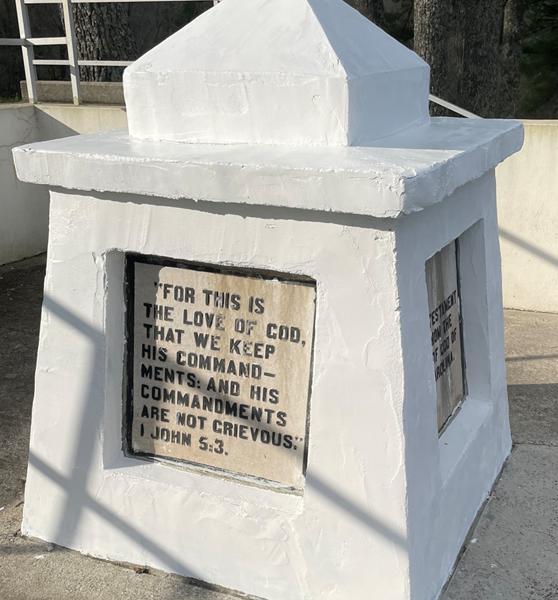

Restoring one Testament at a time. Your contribution is making a difference to our visitors. Visit our website to donate today. FOWRENEW.ORG

